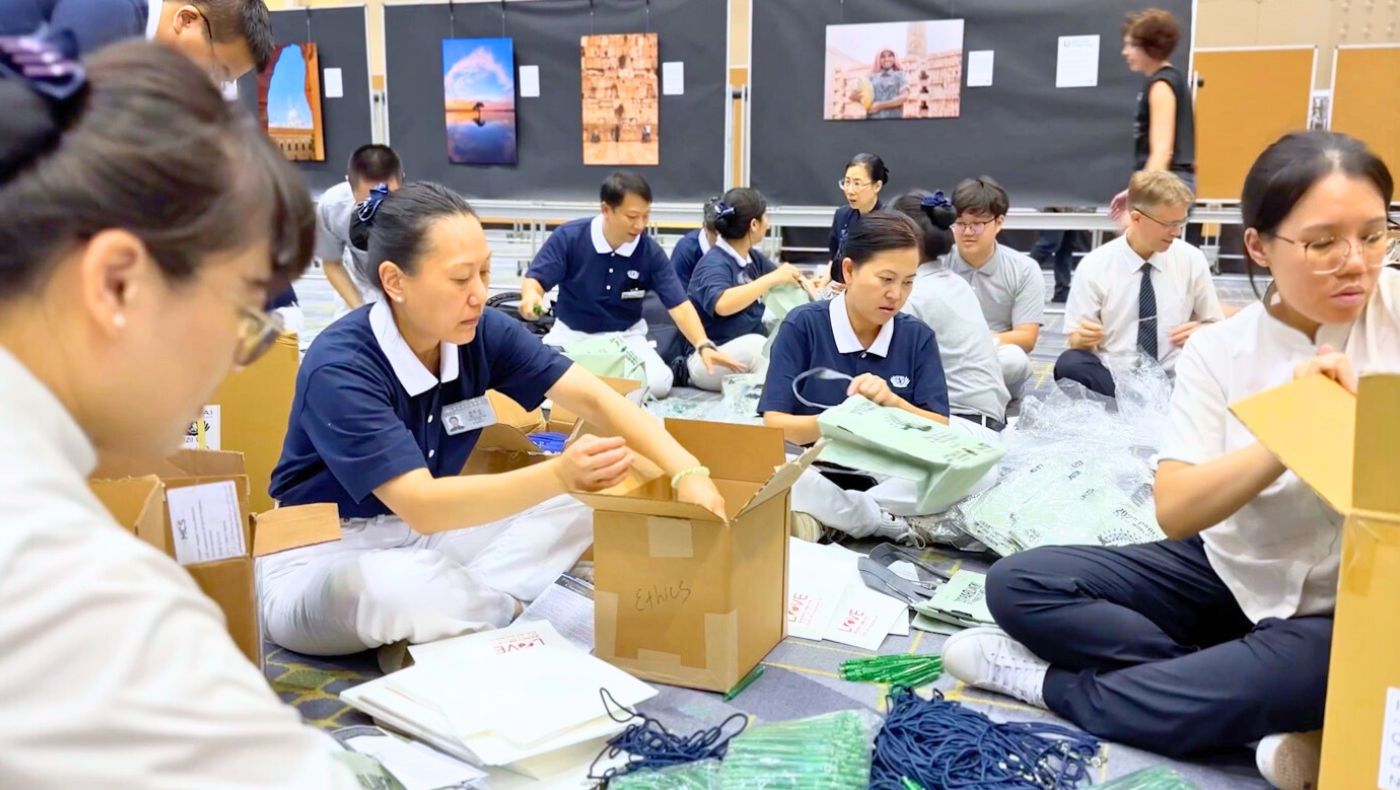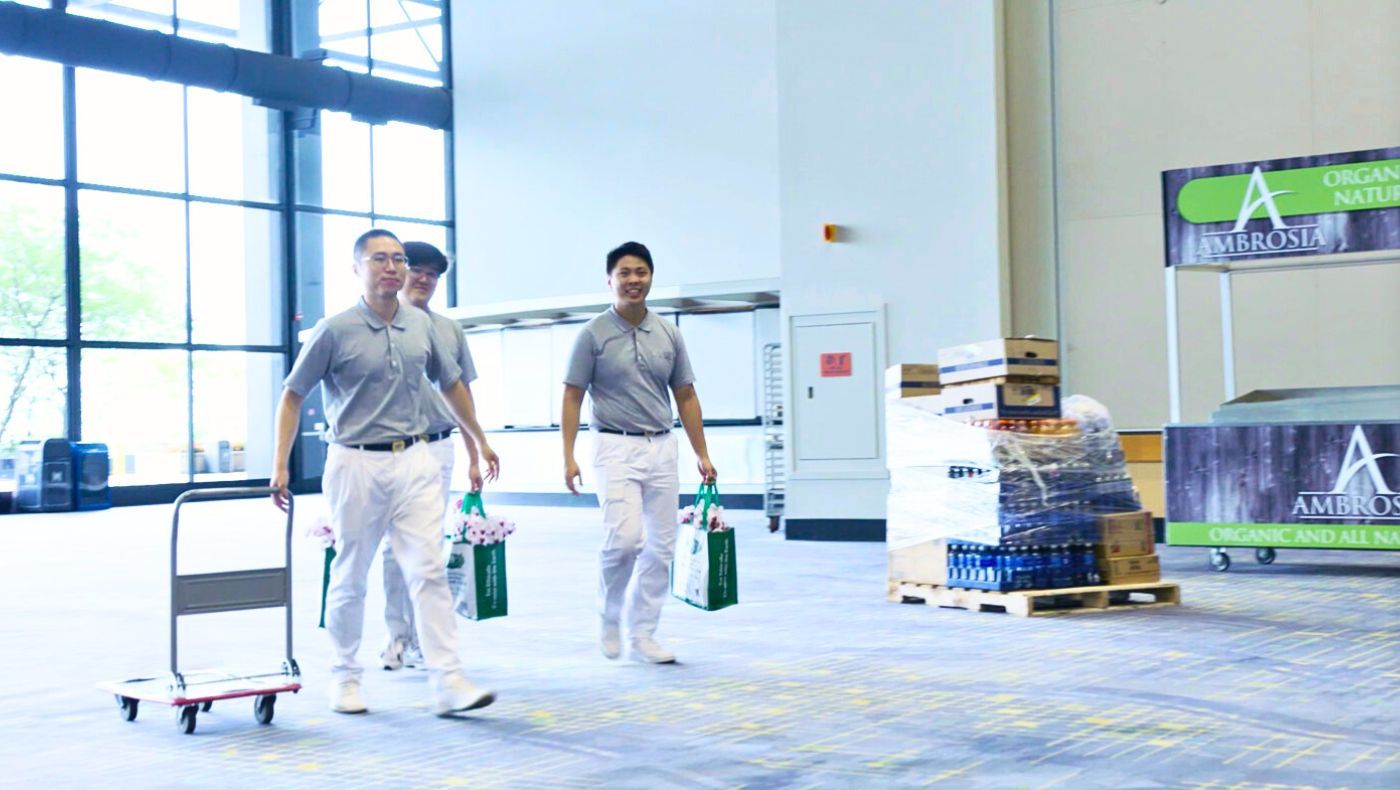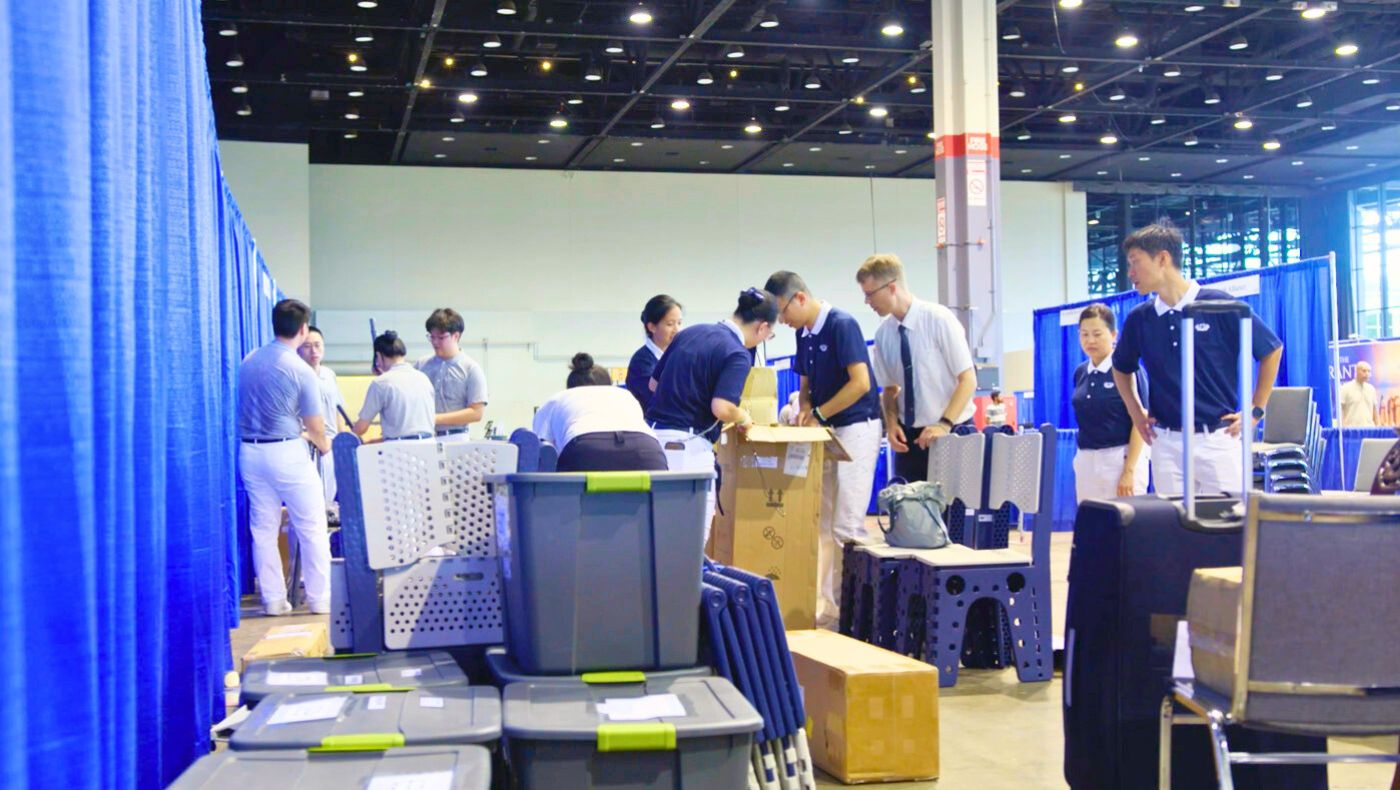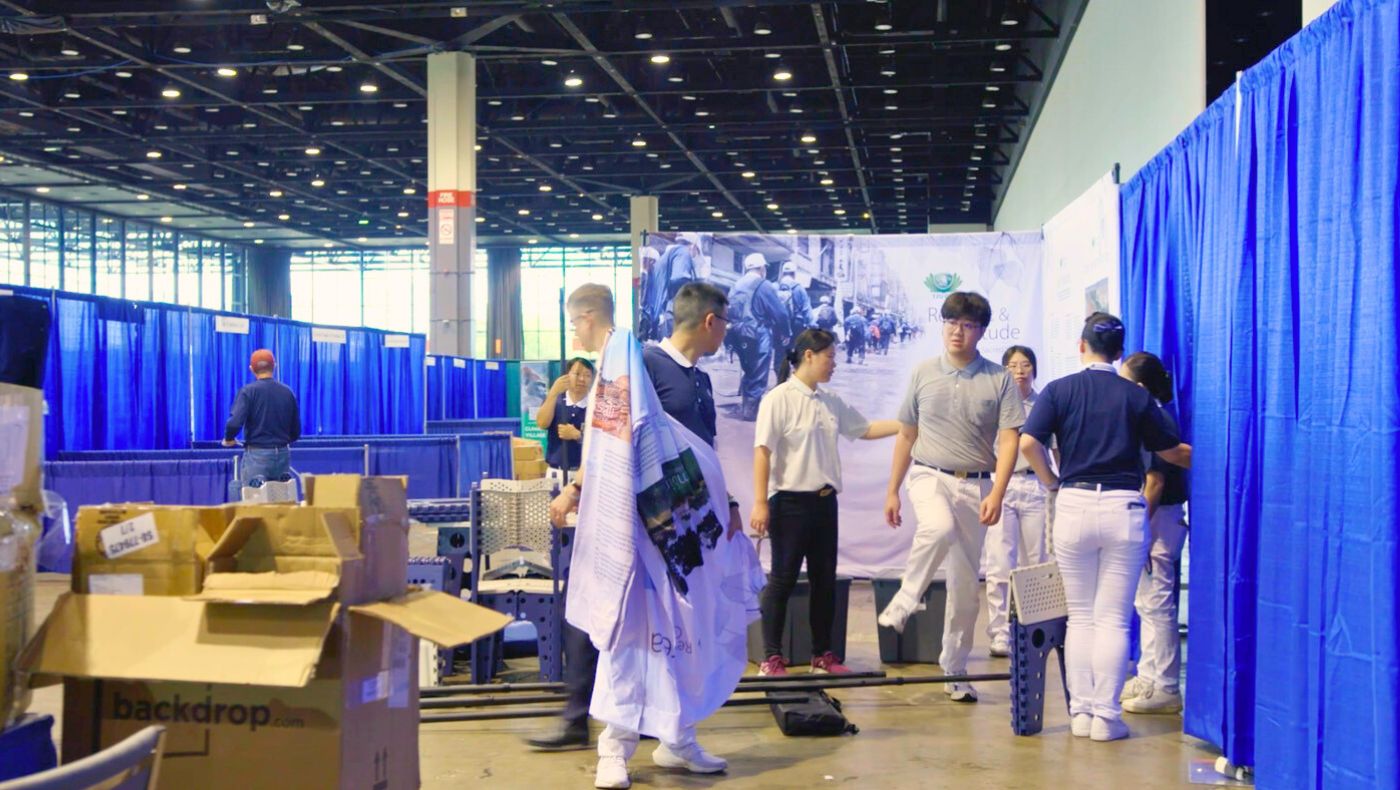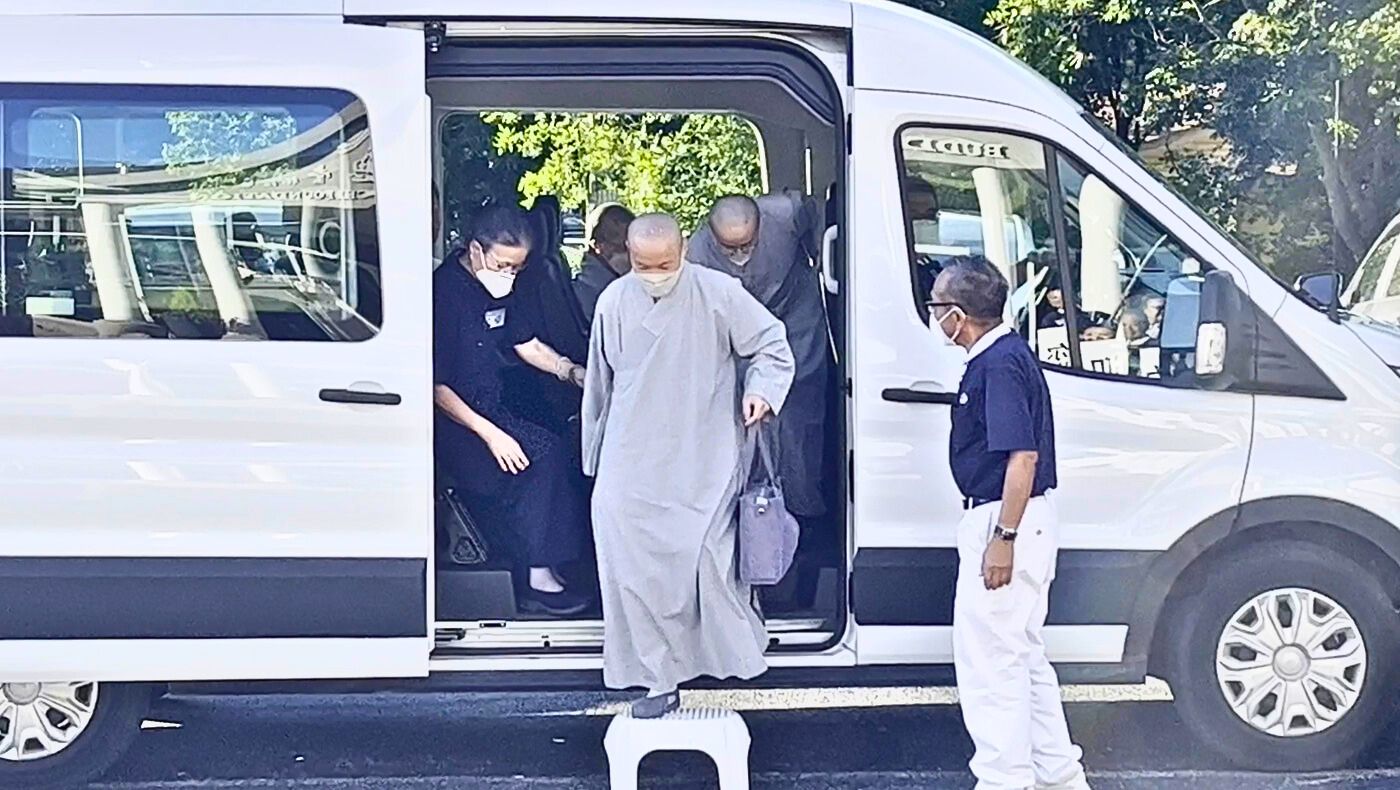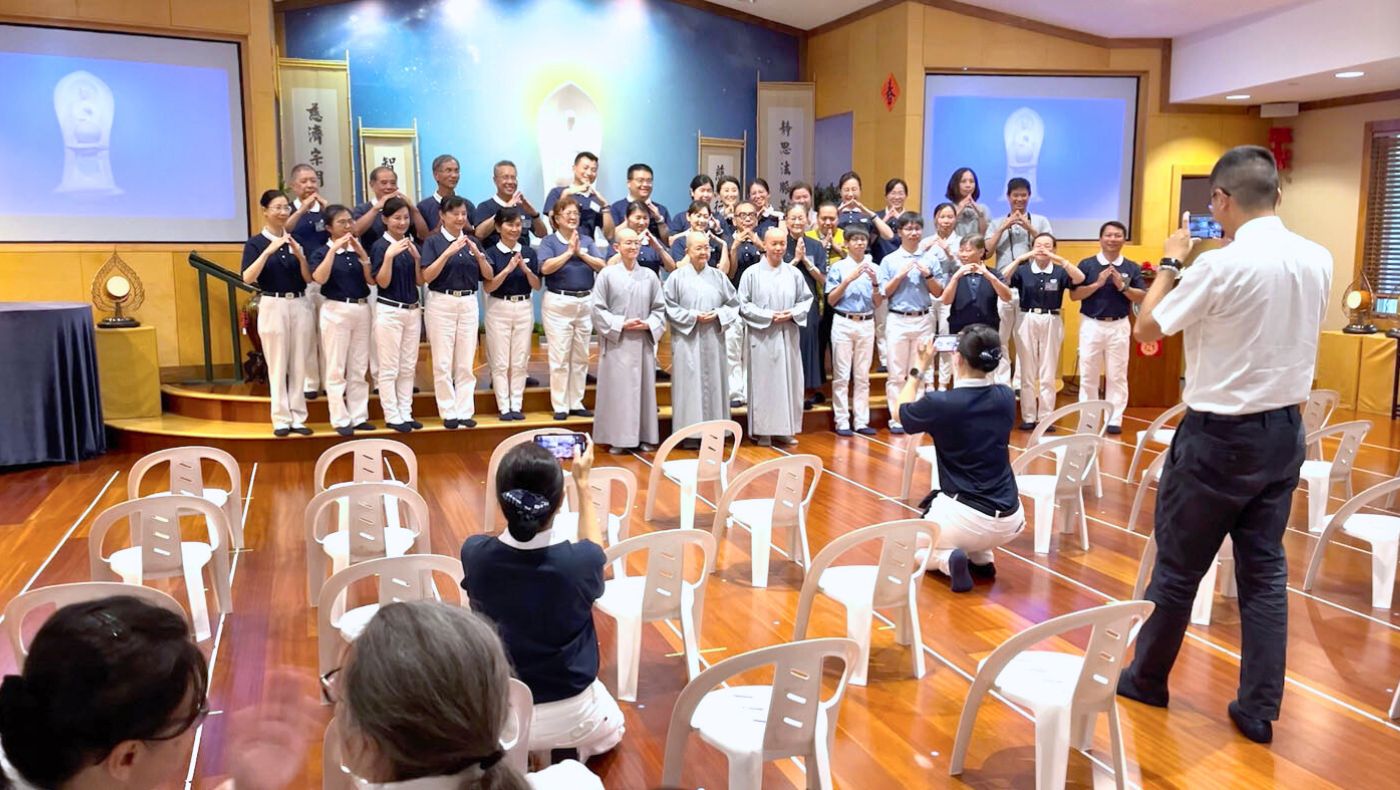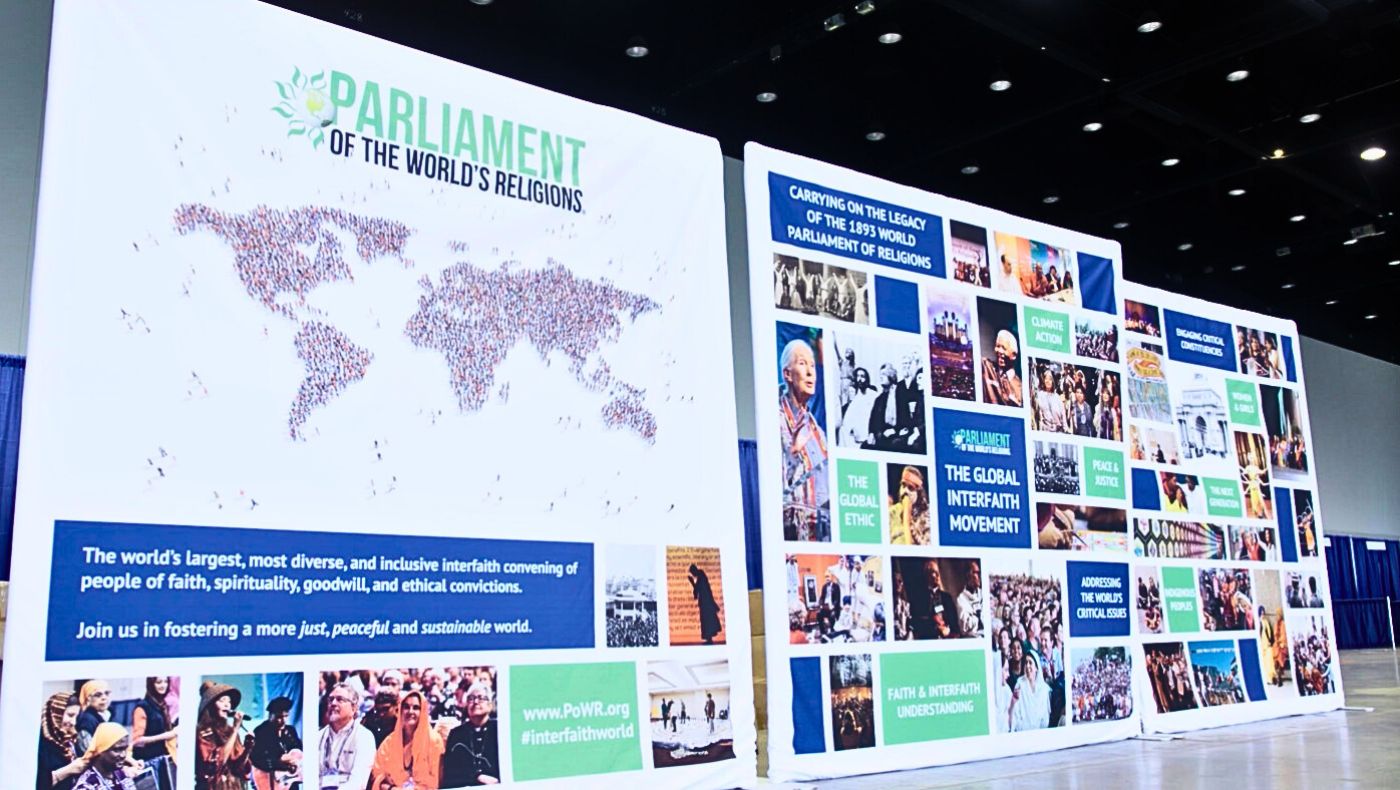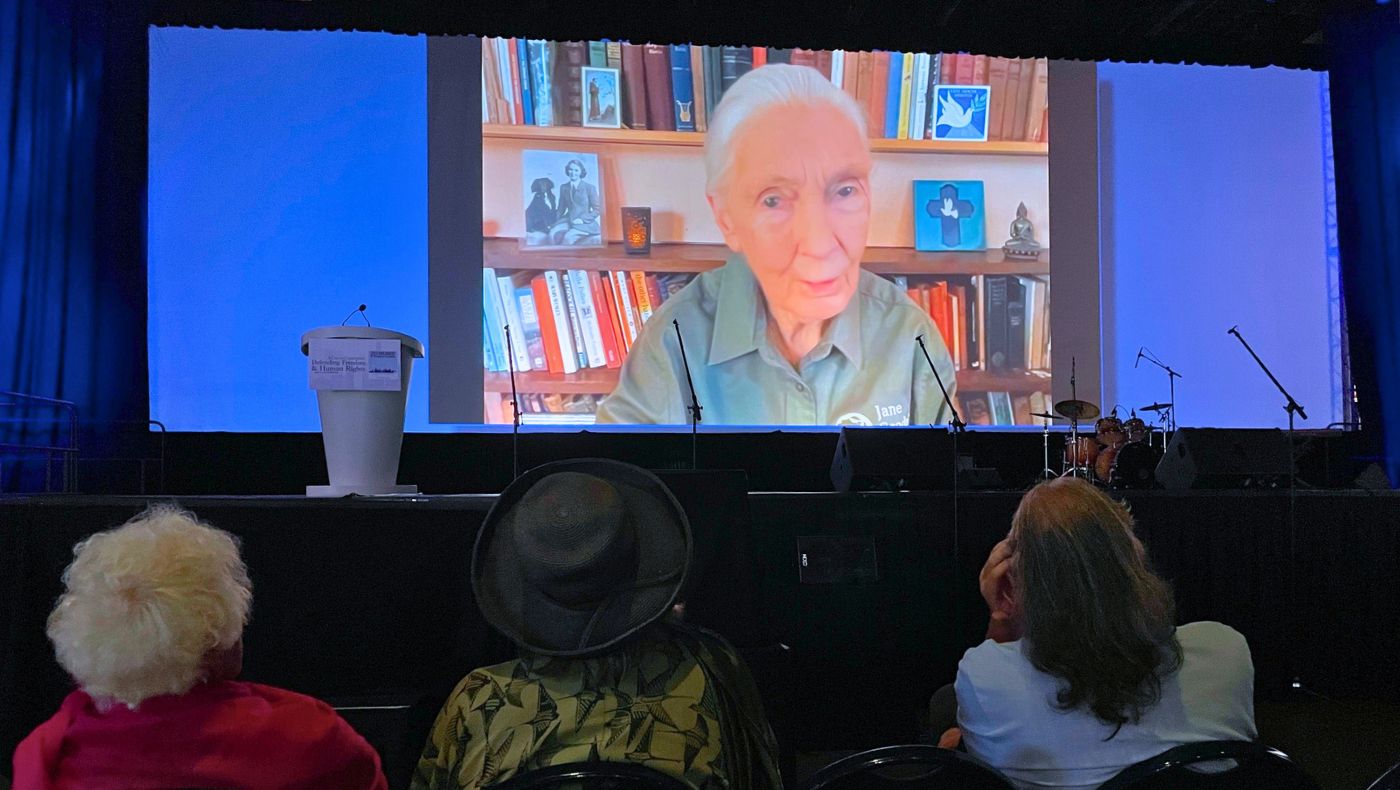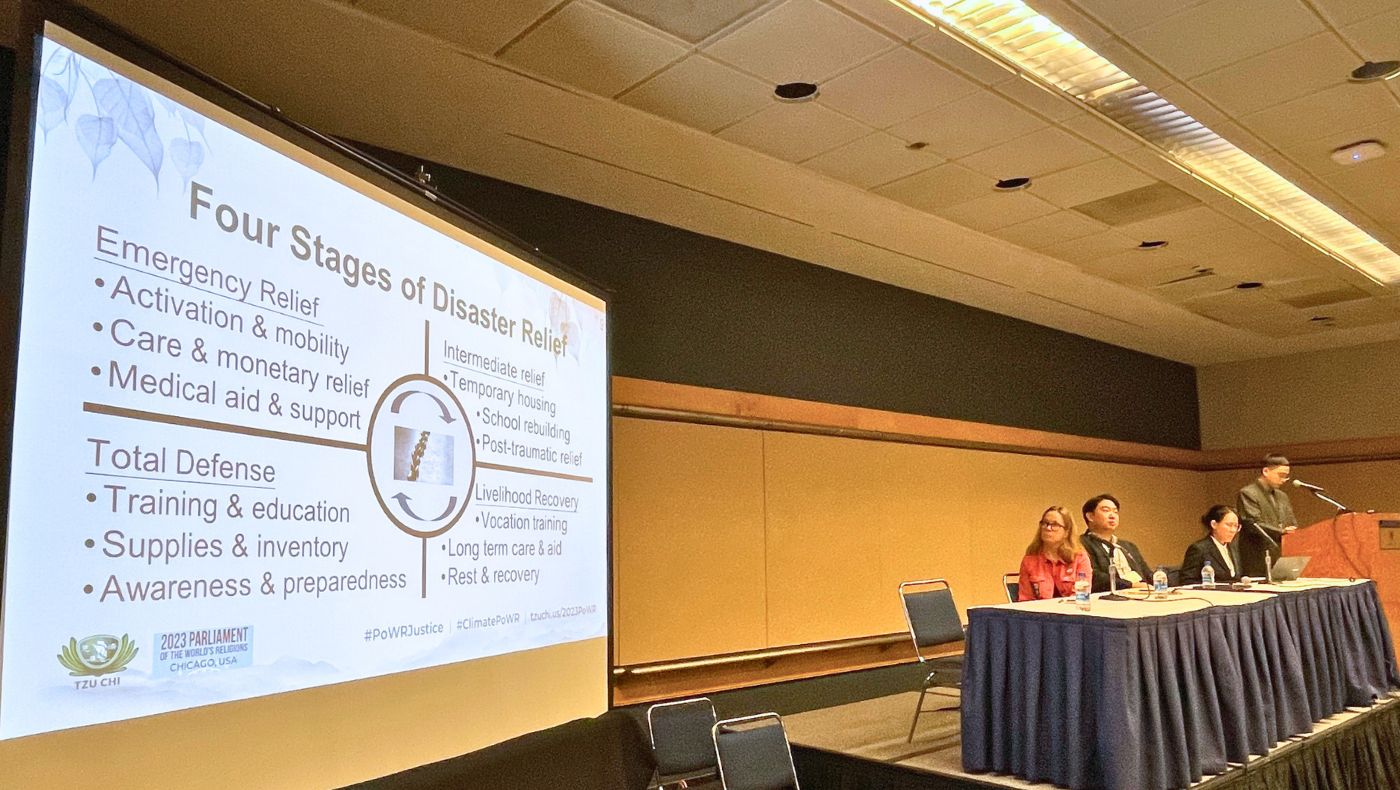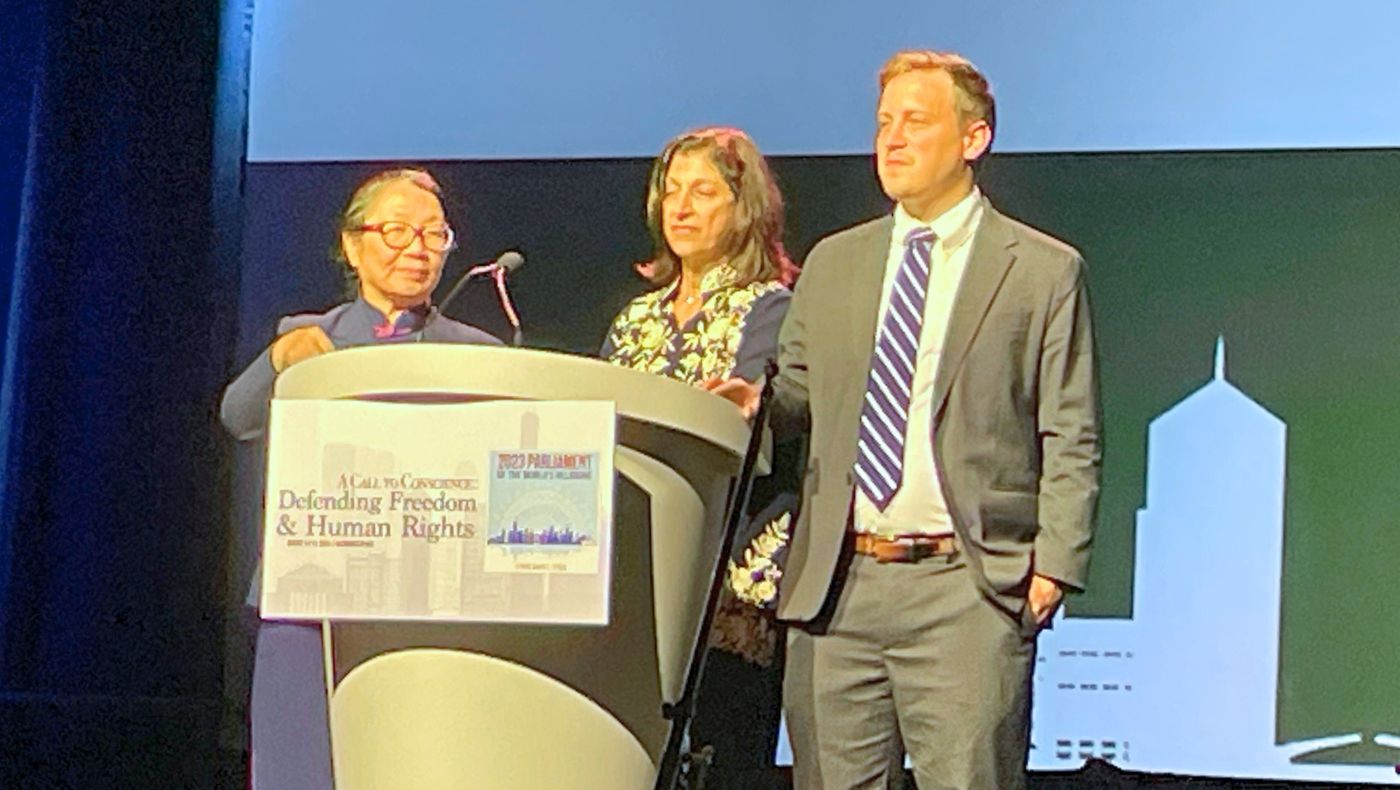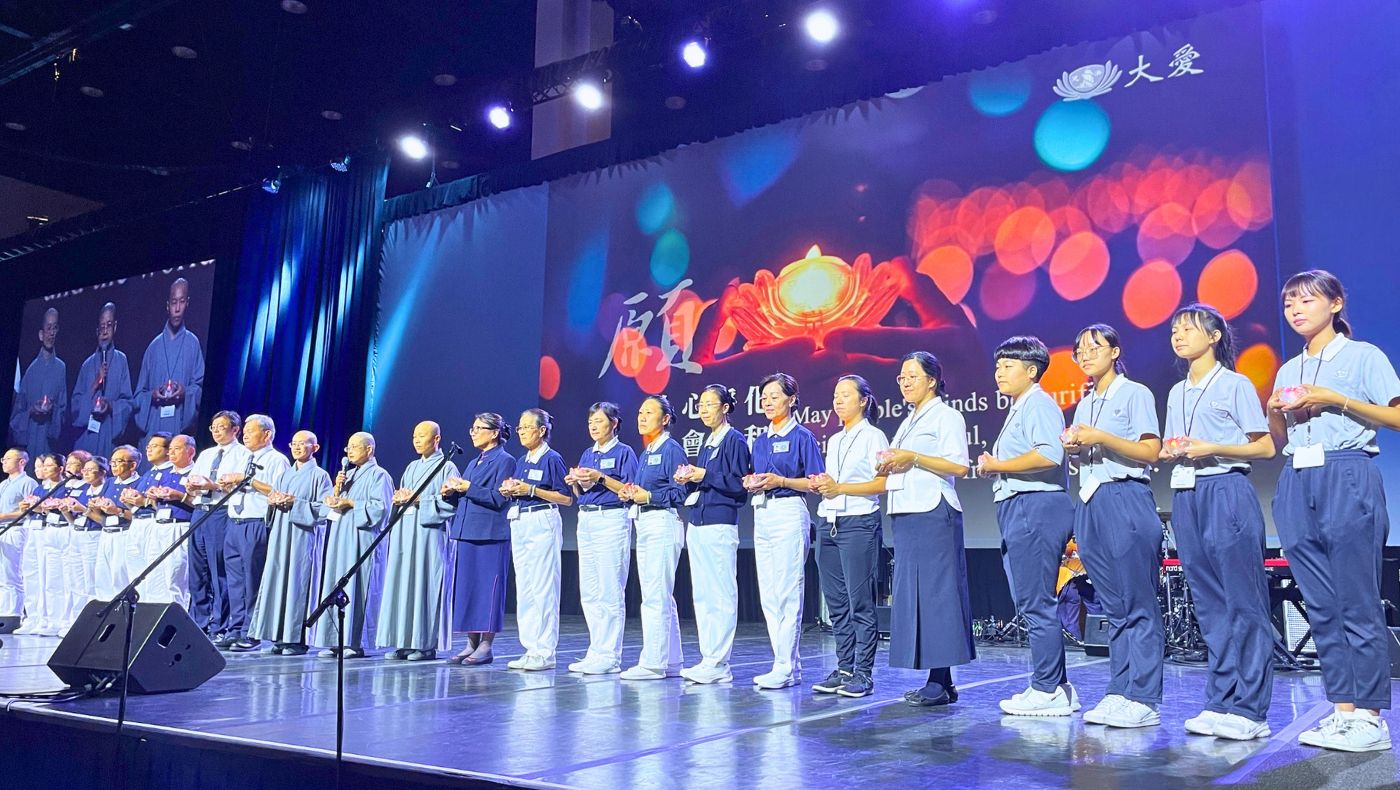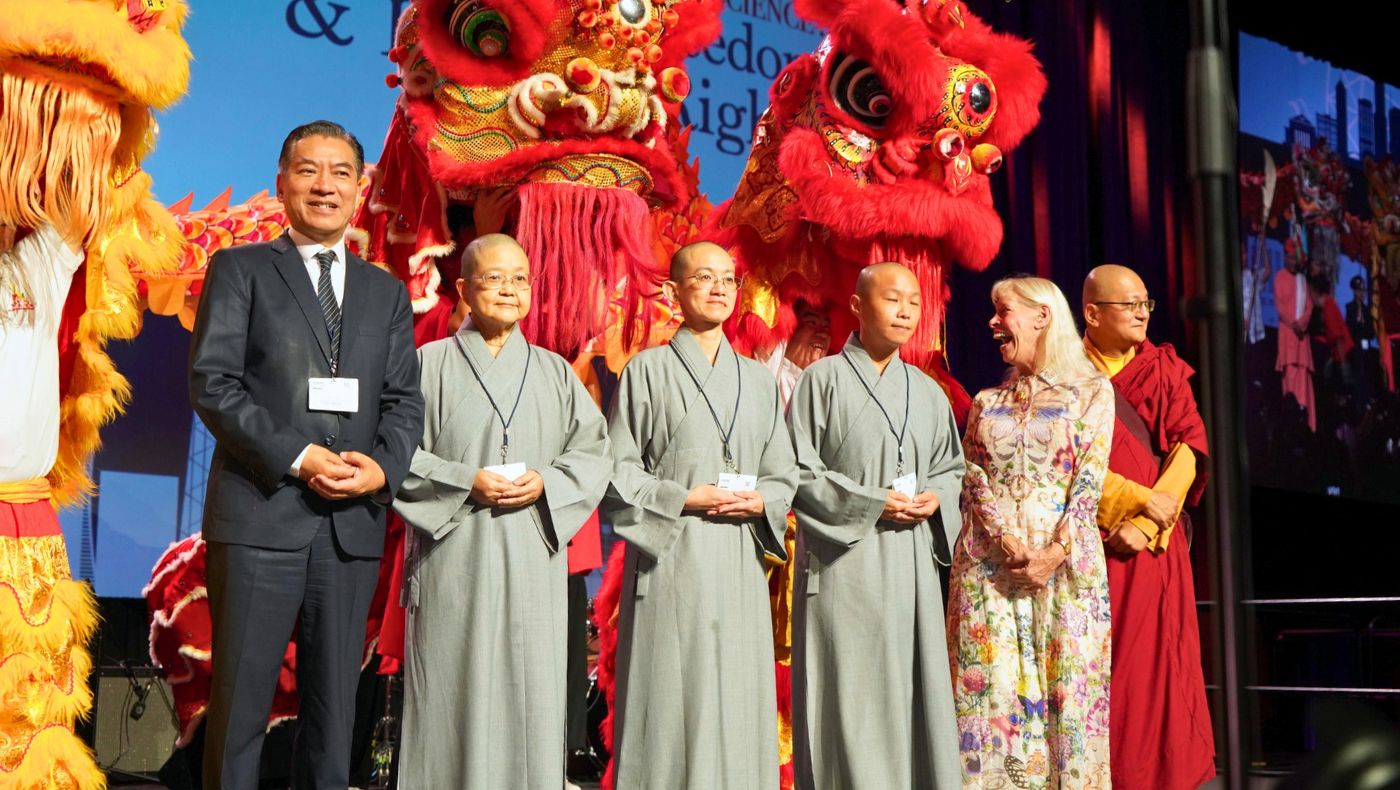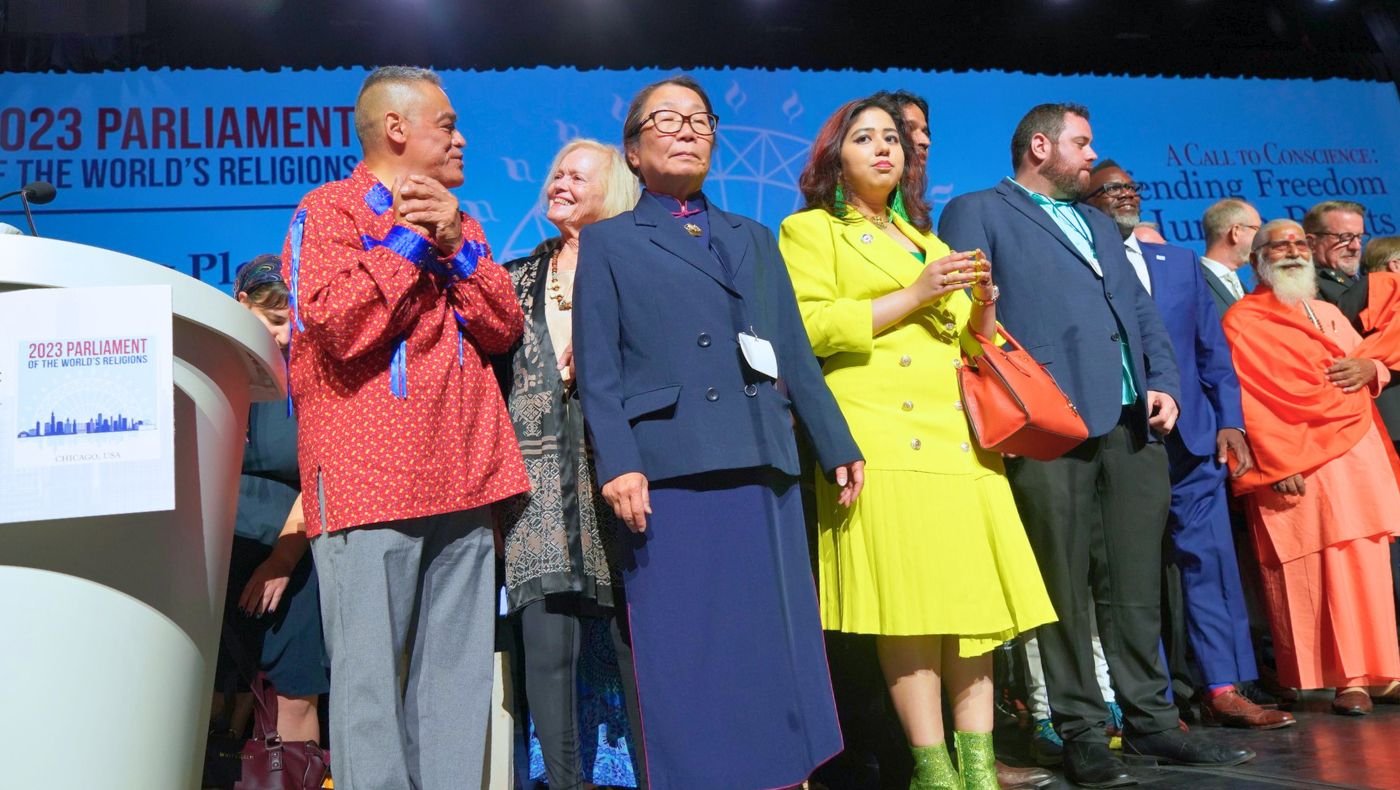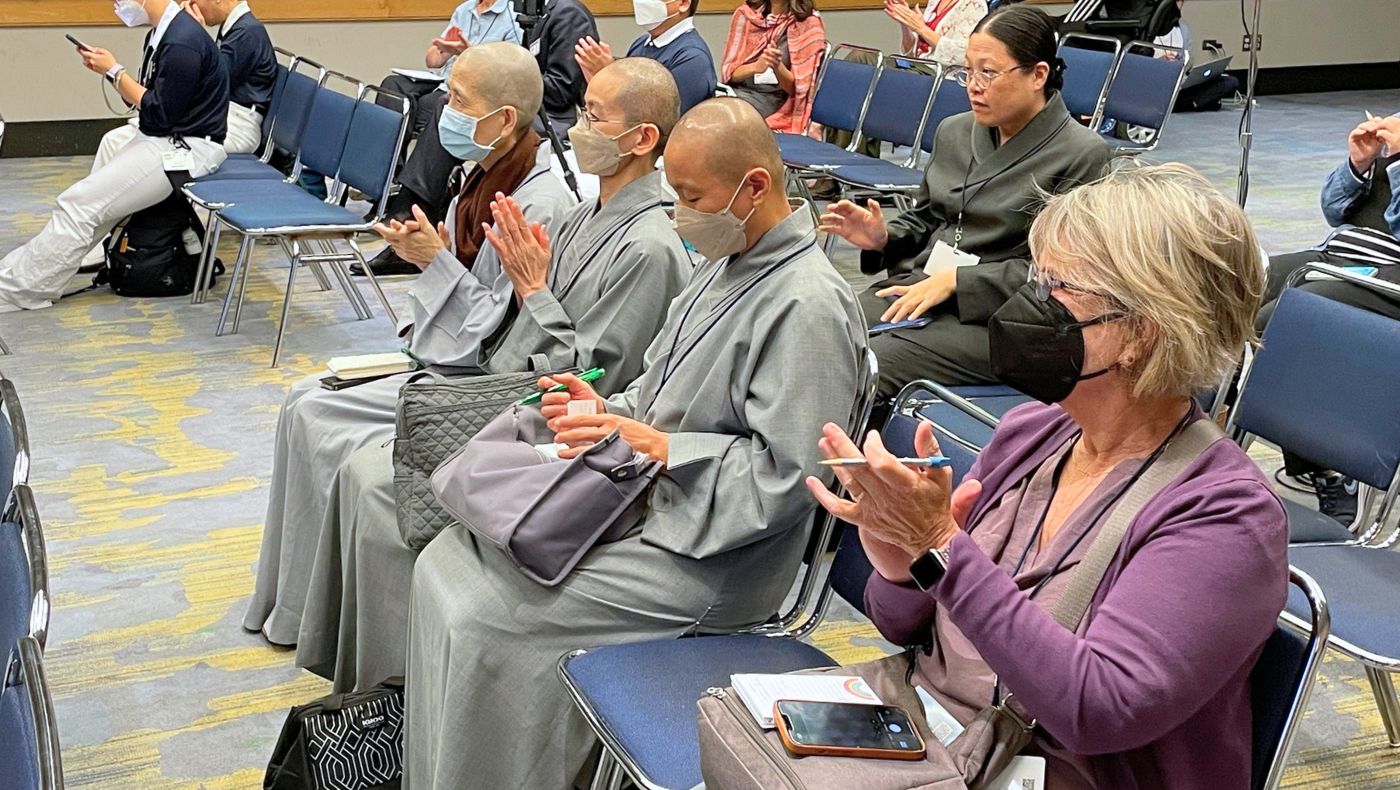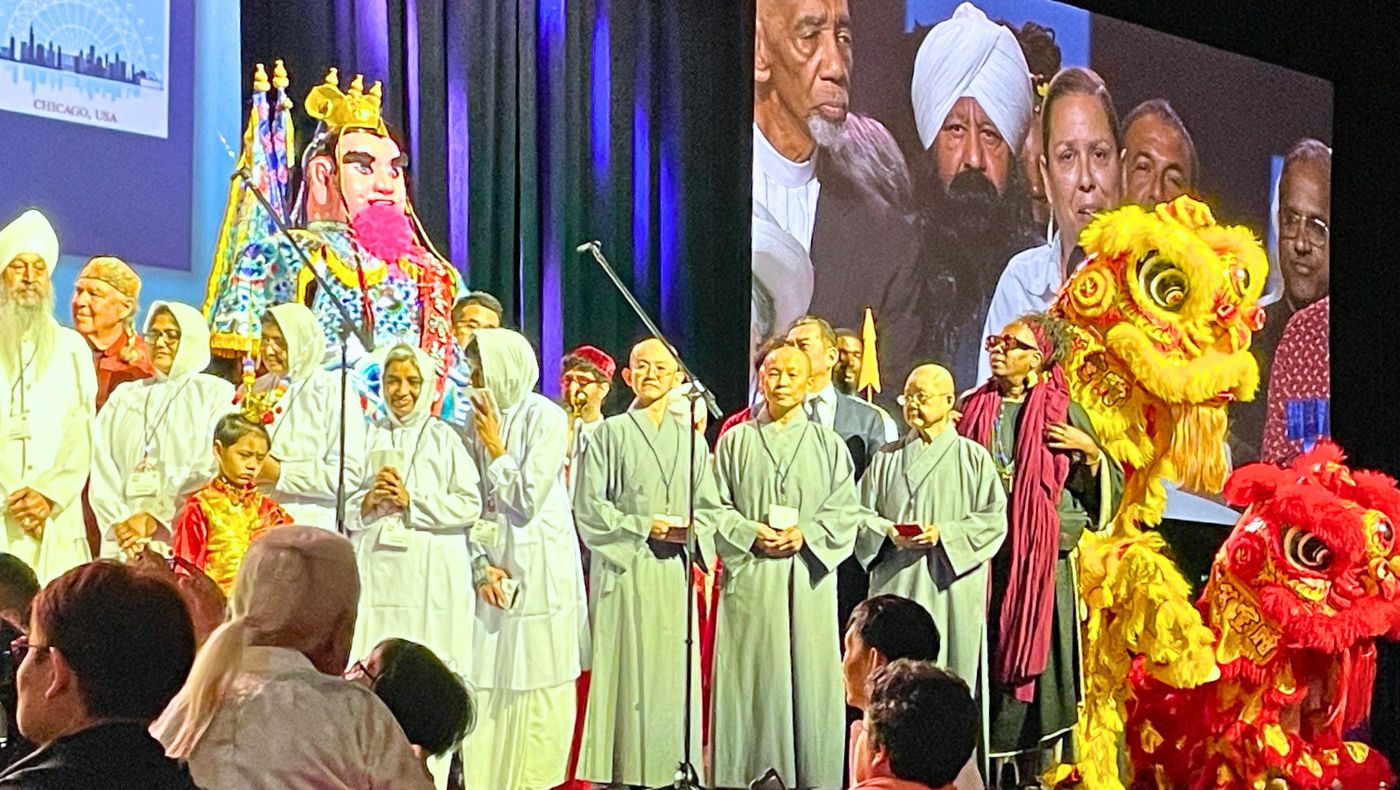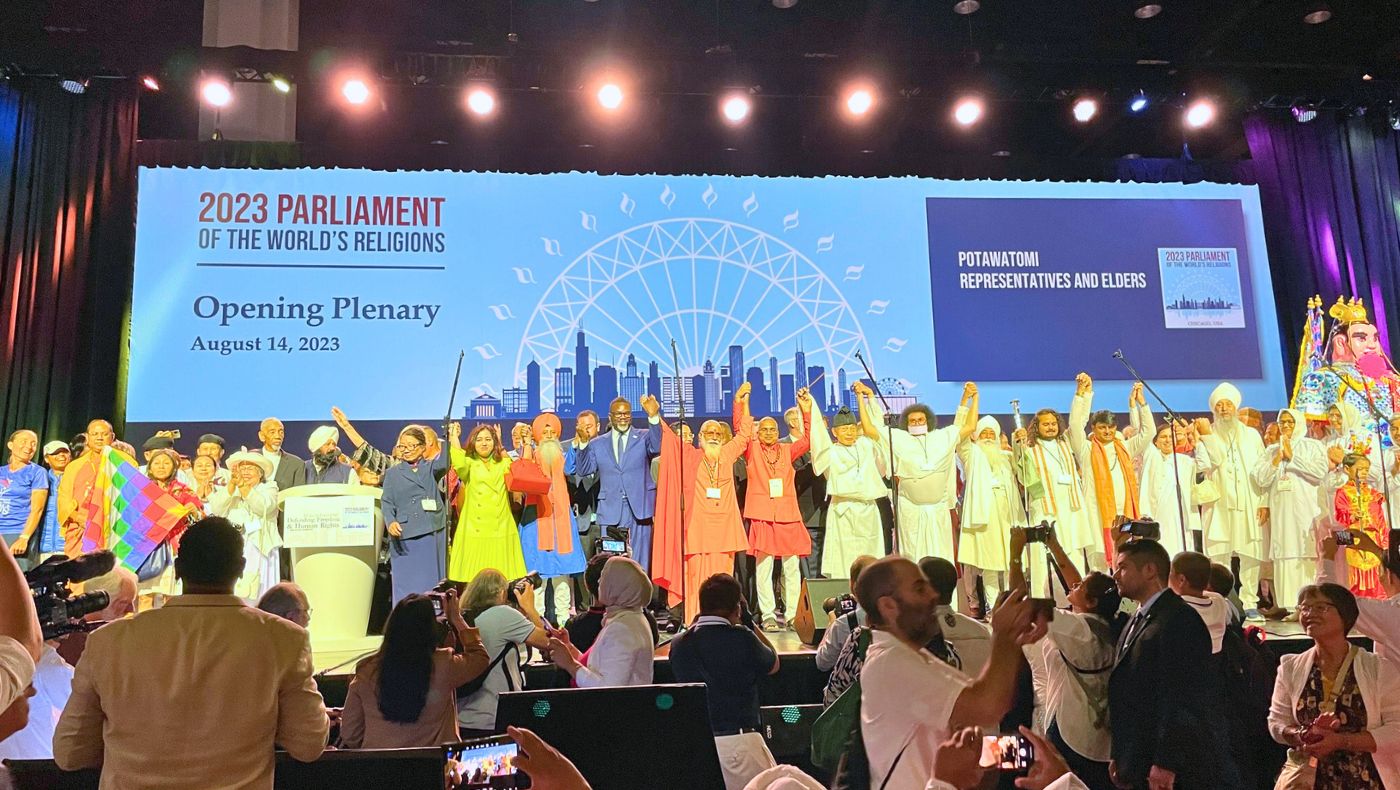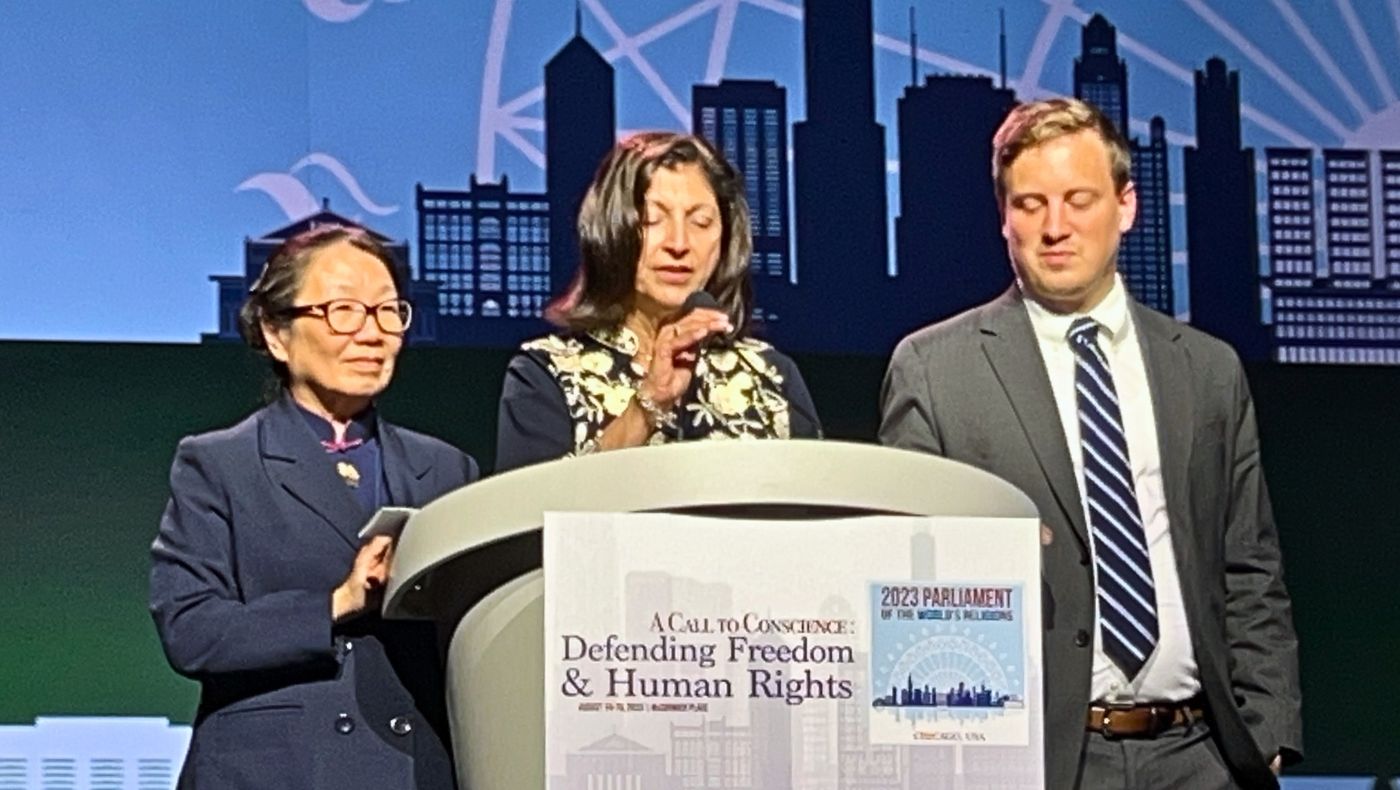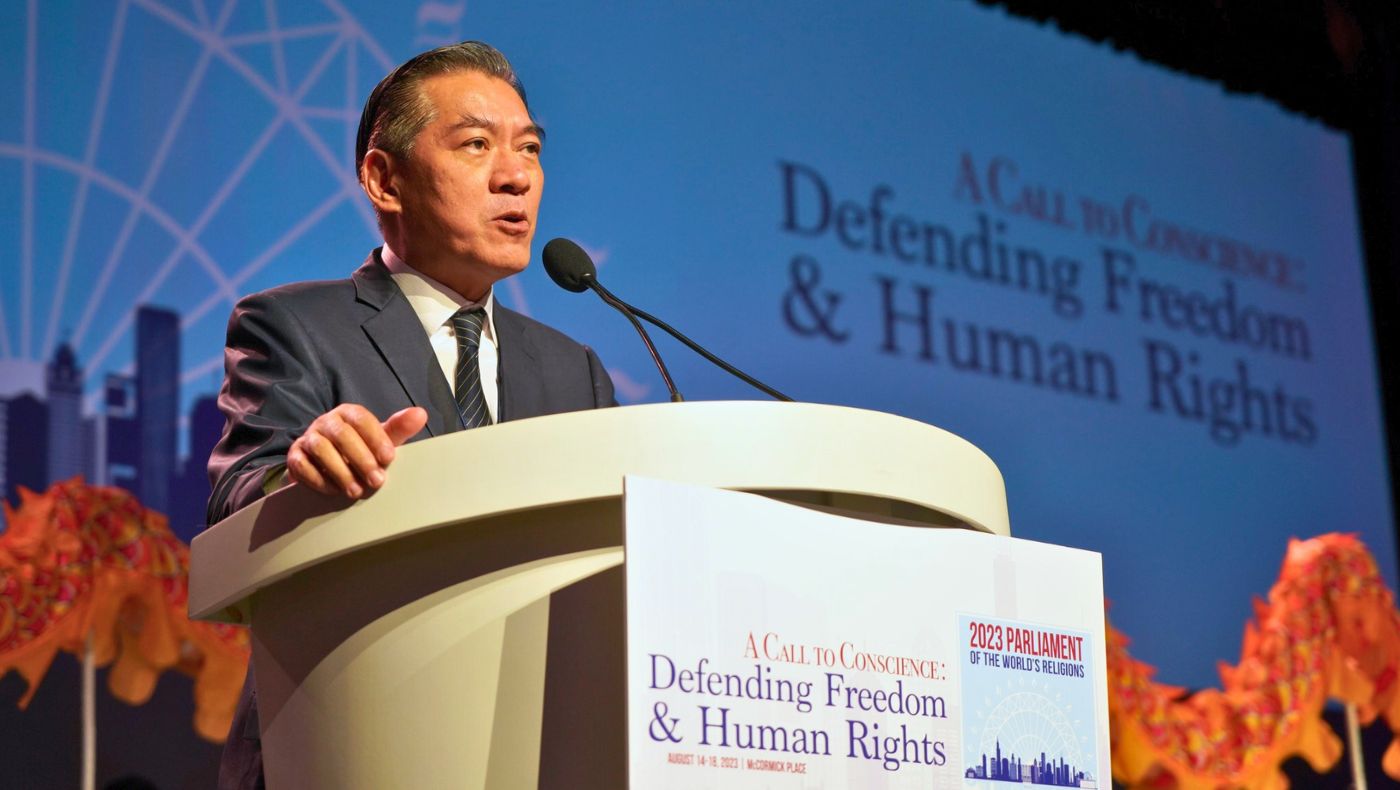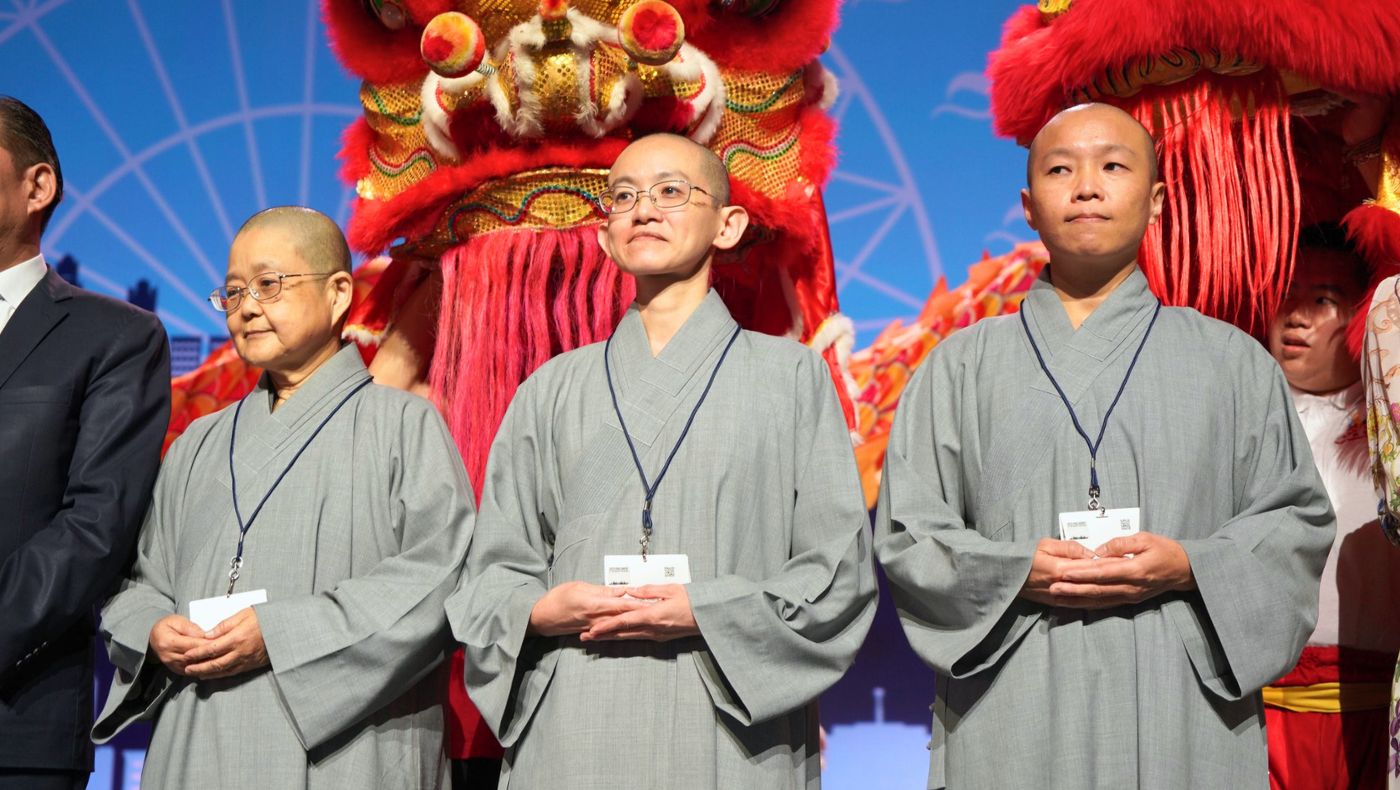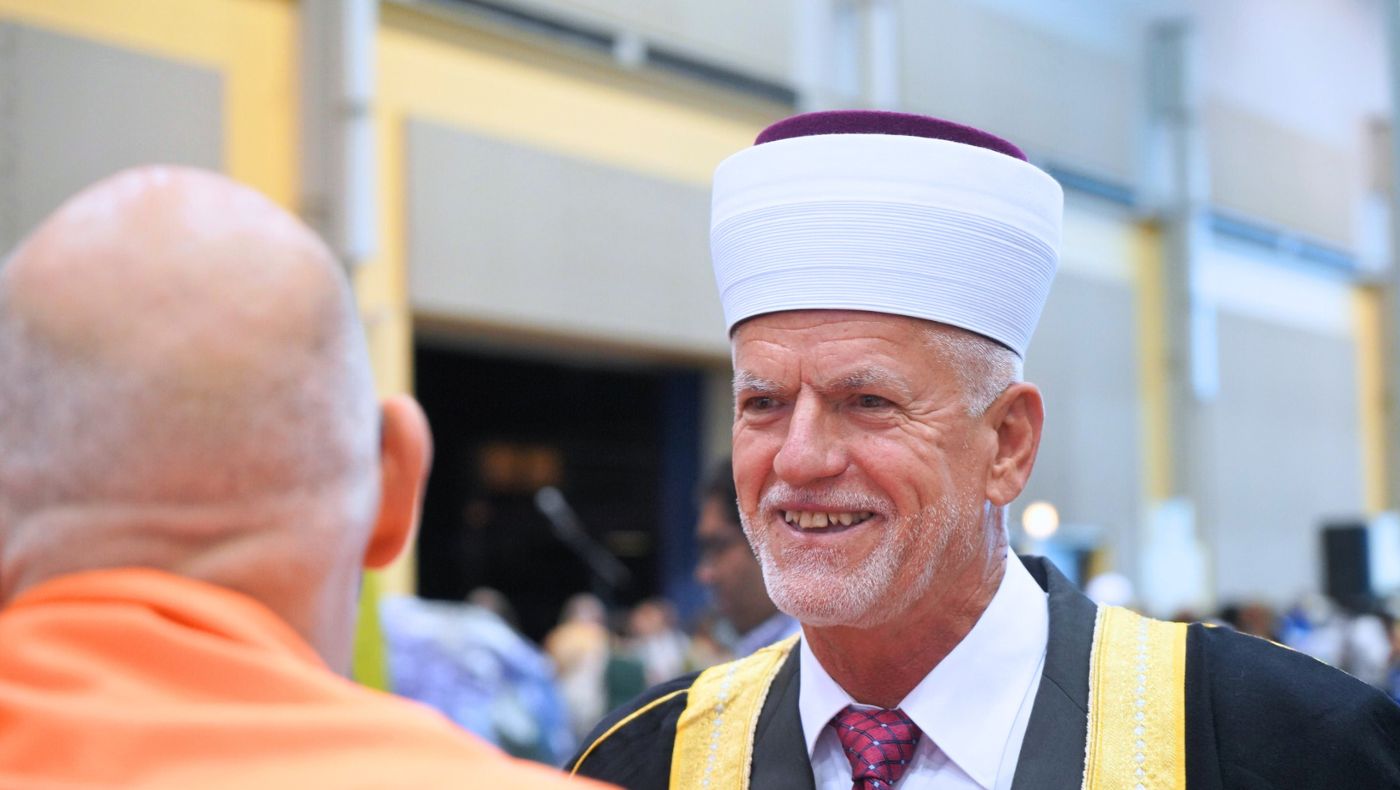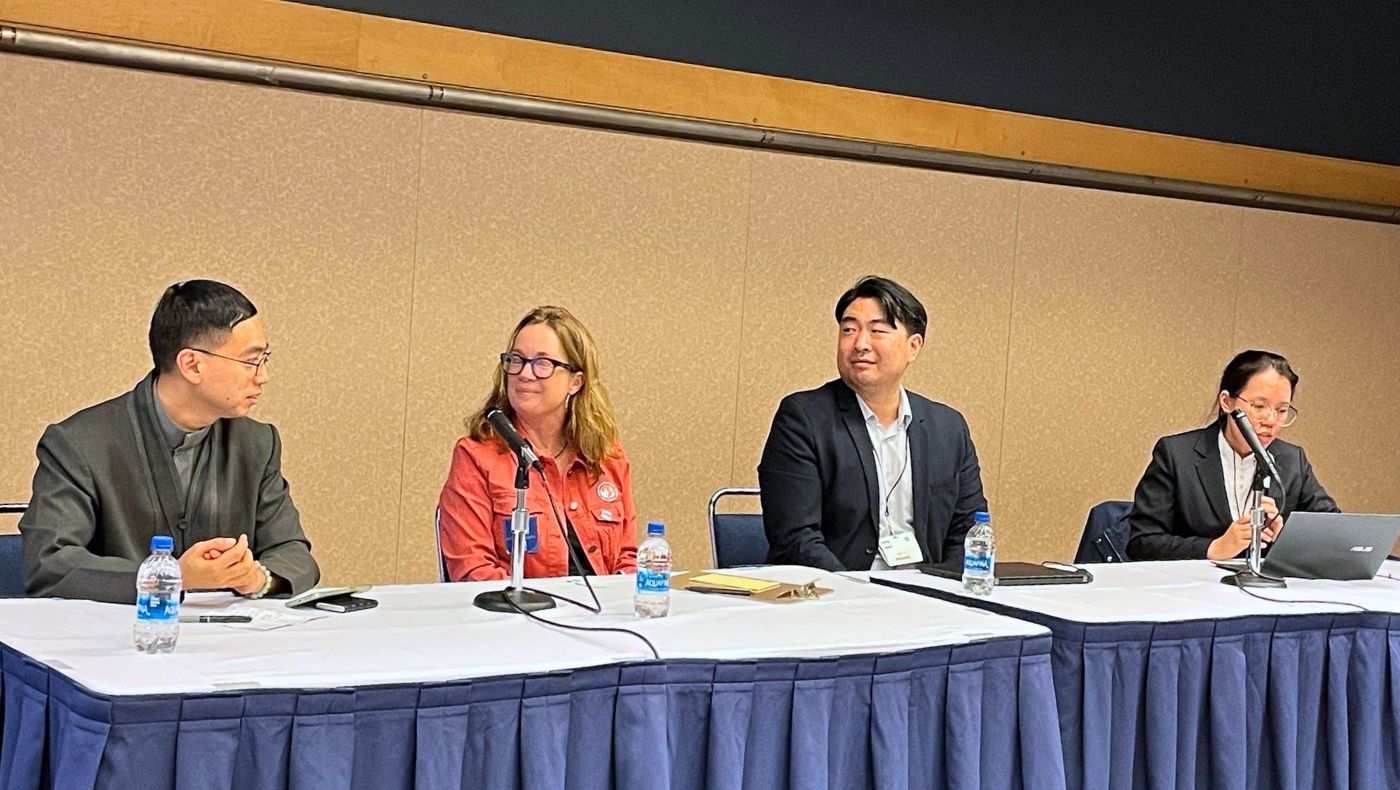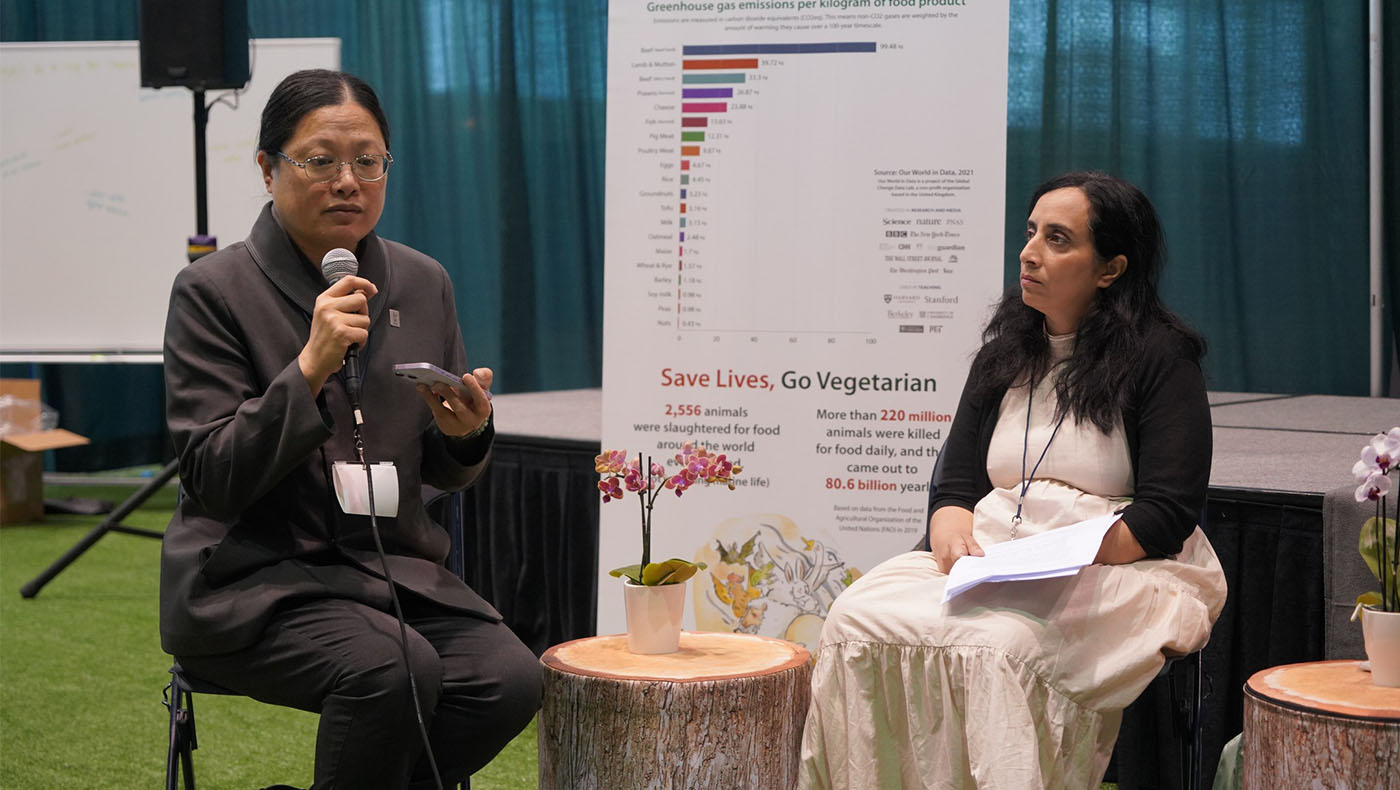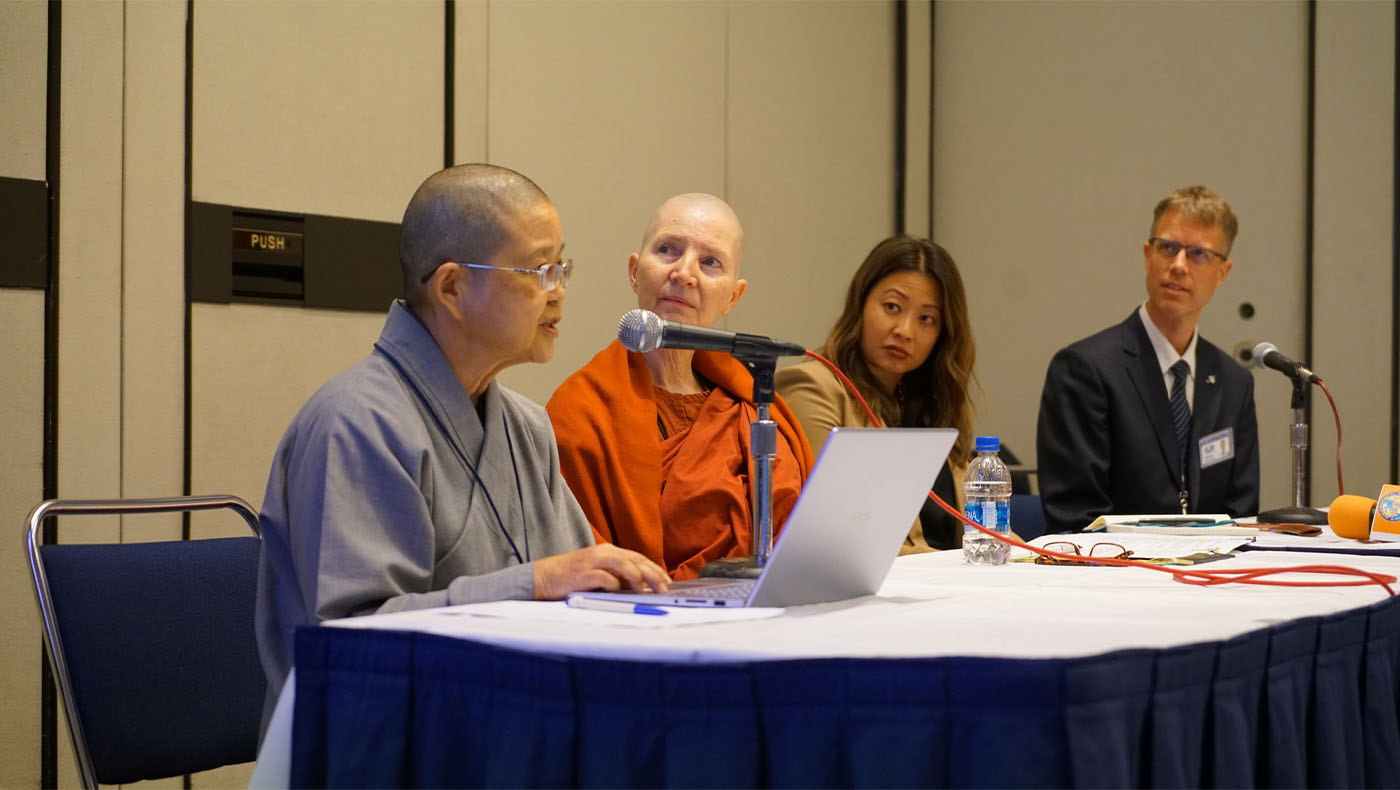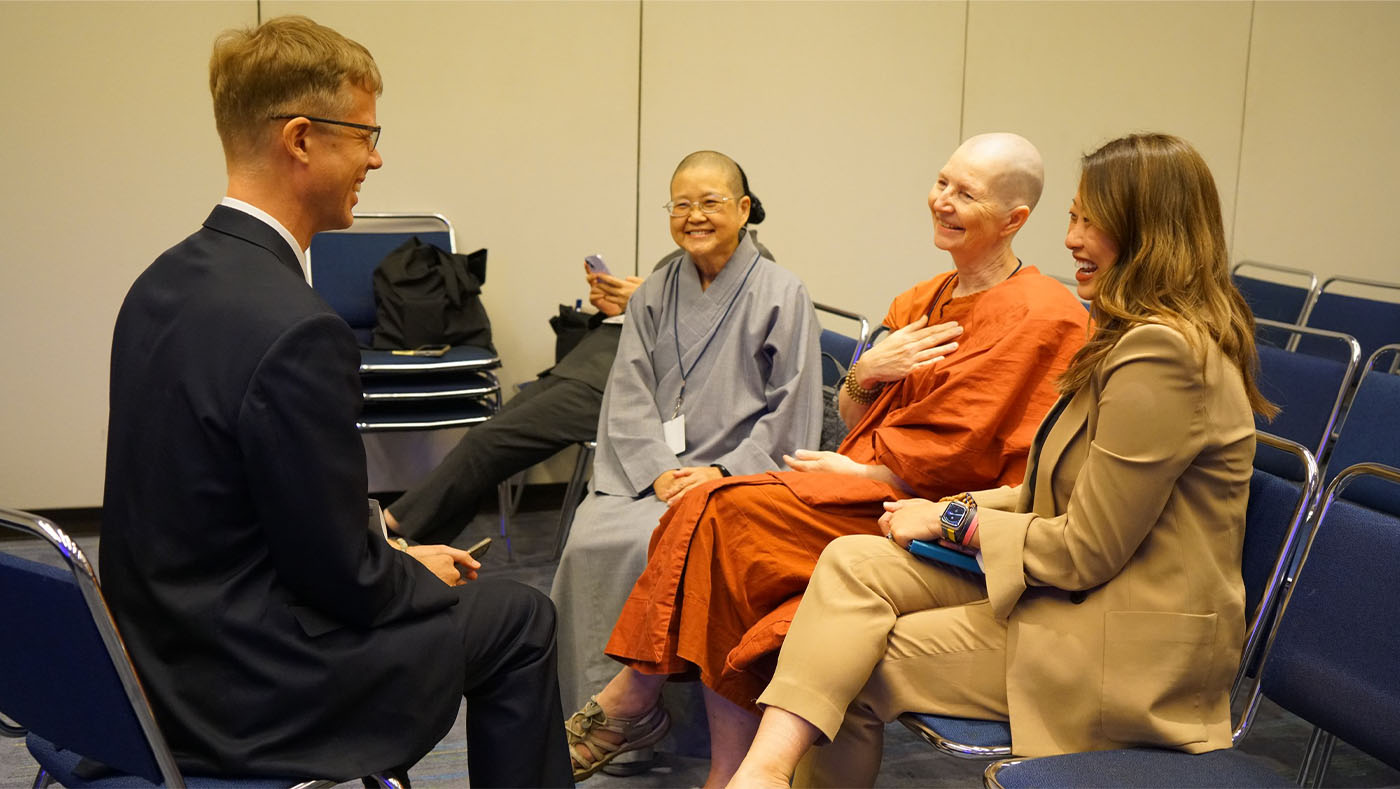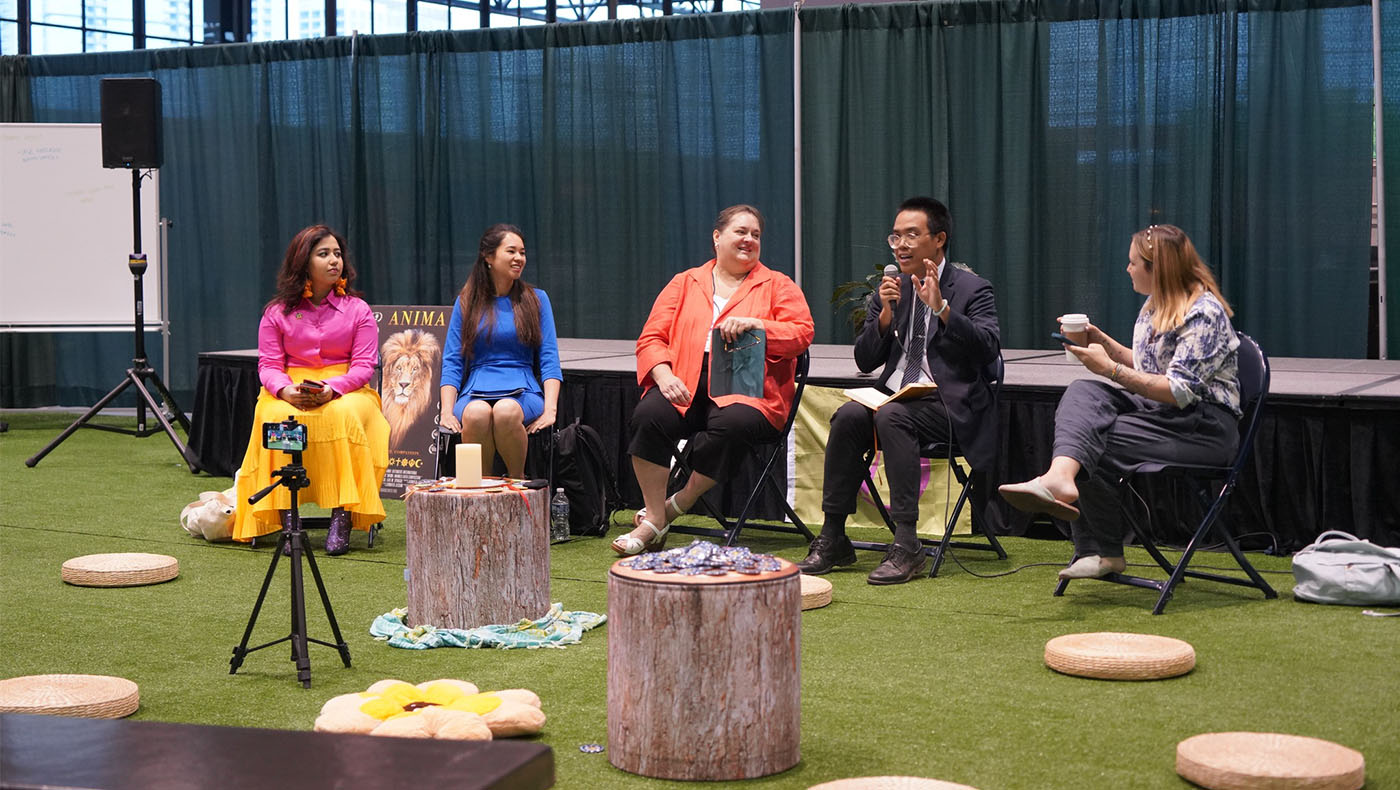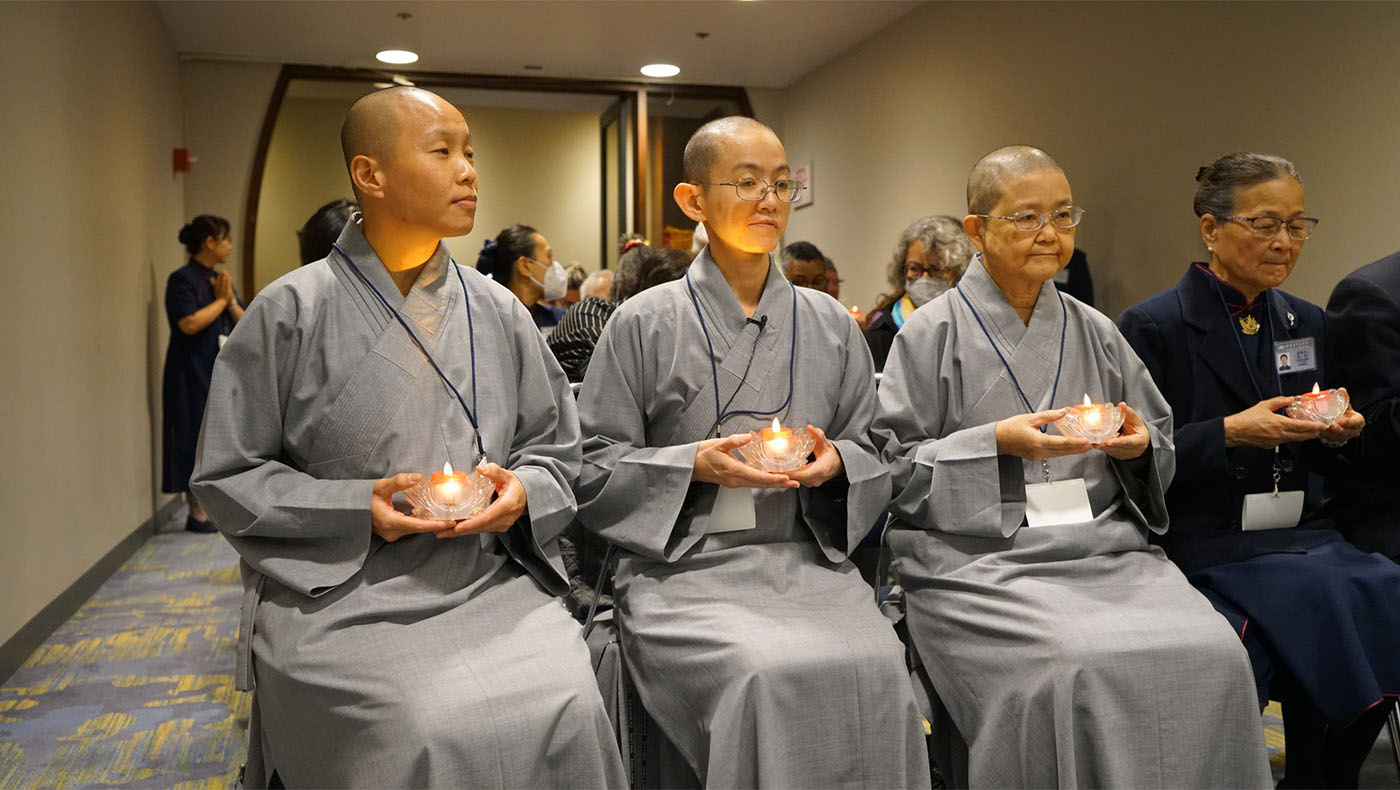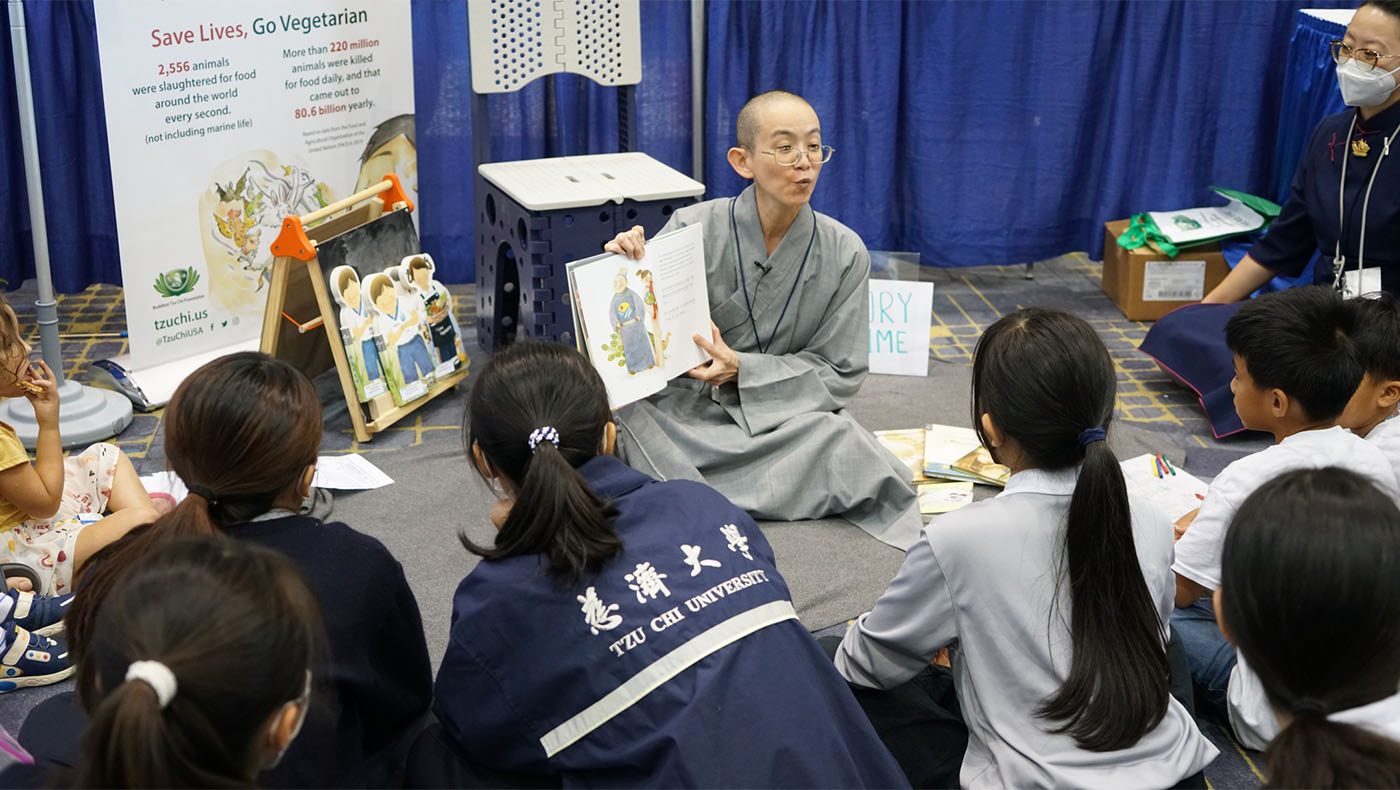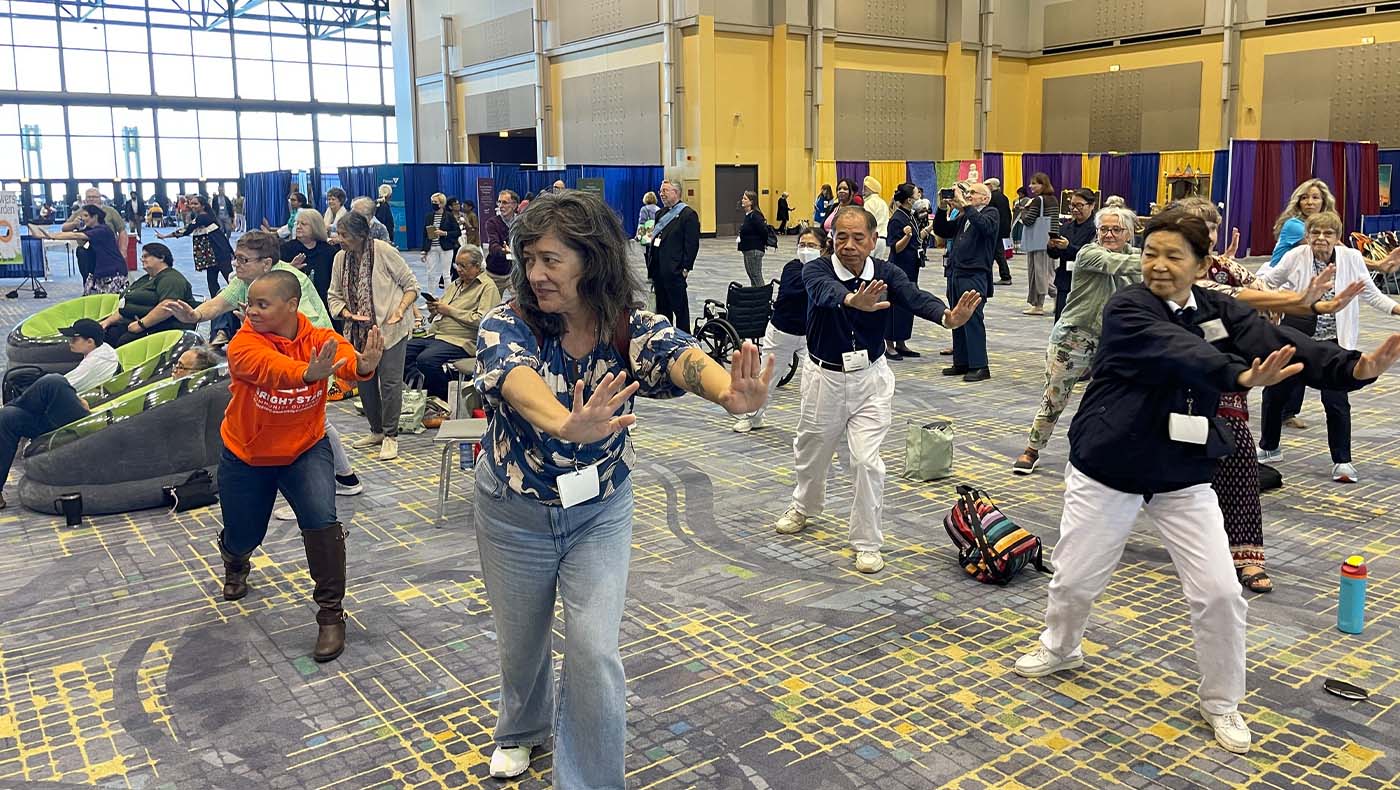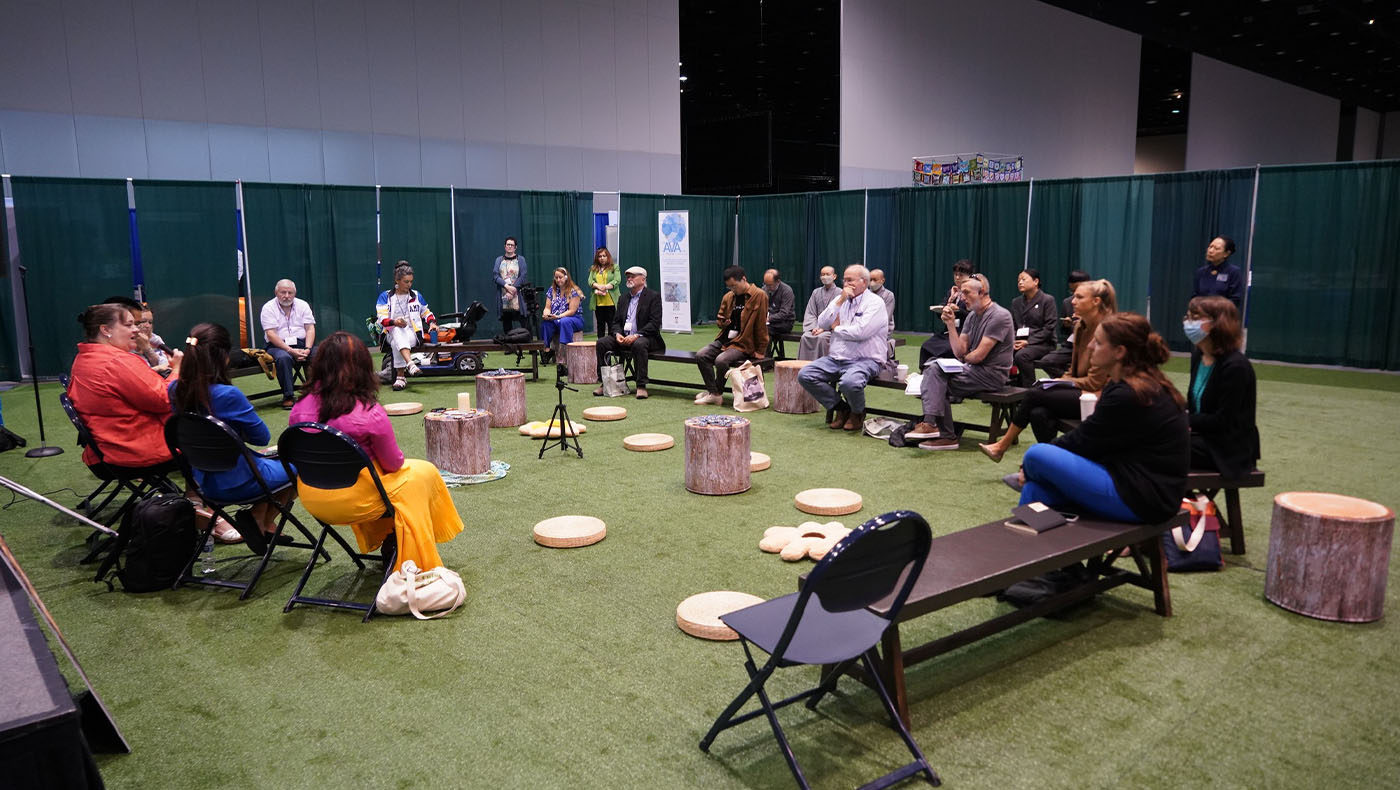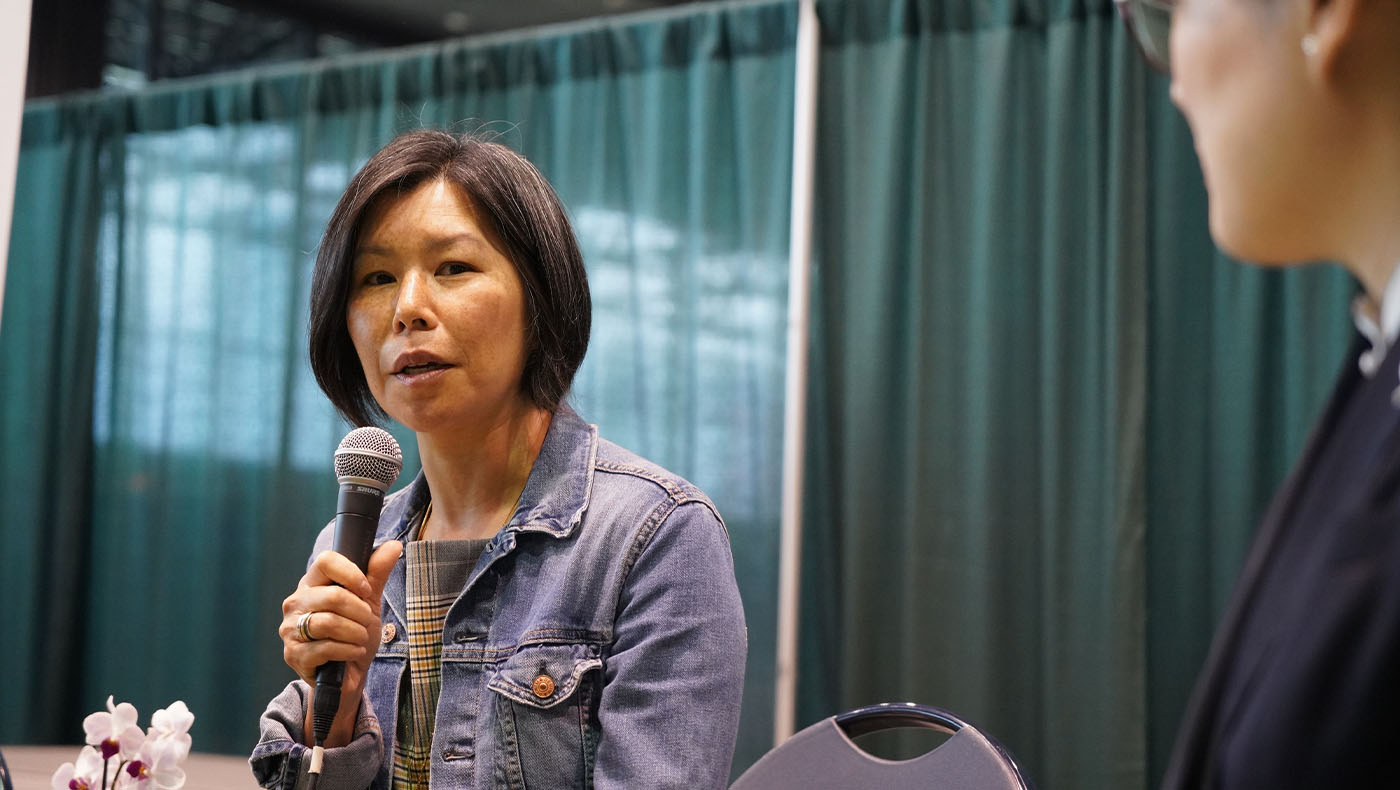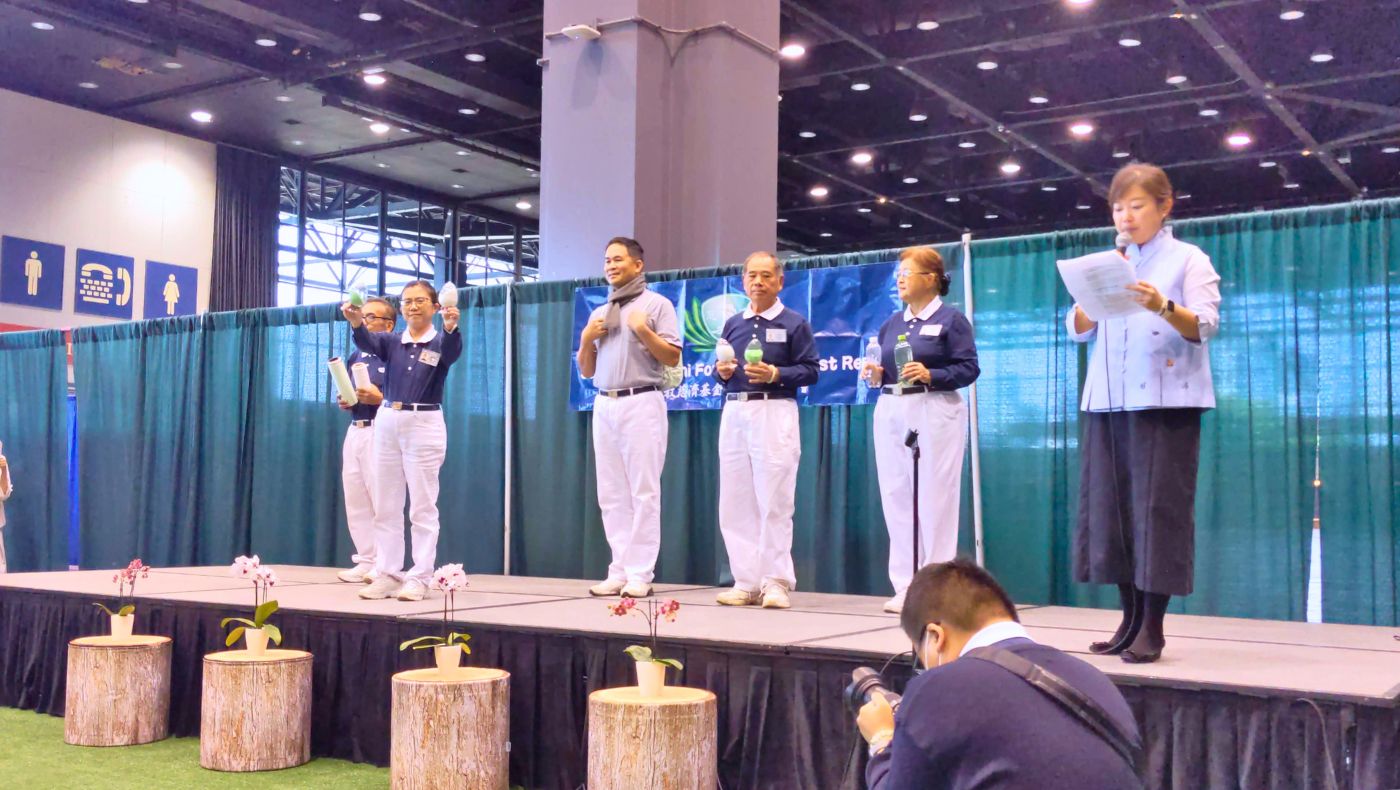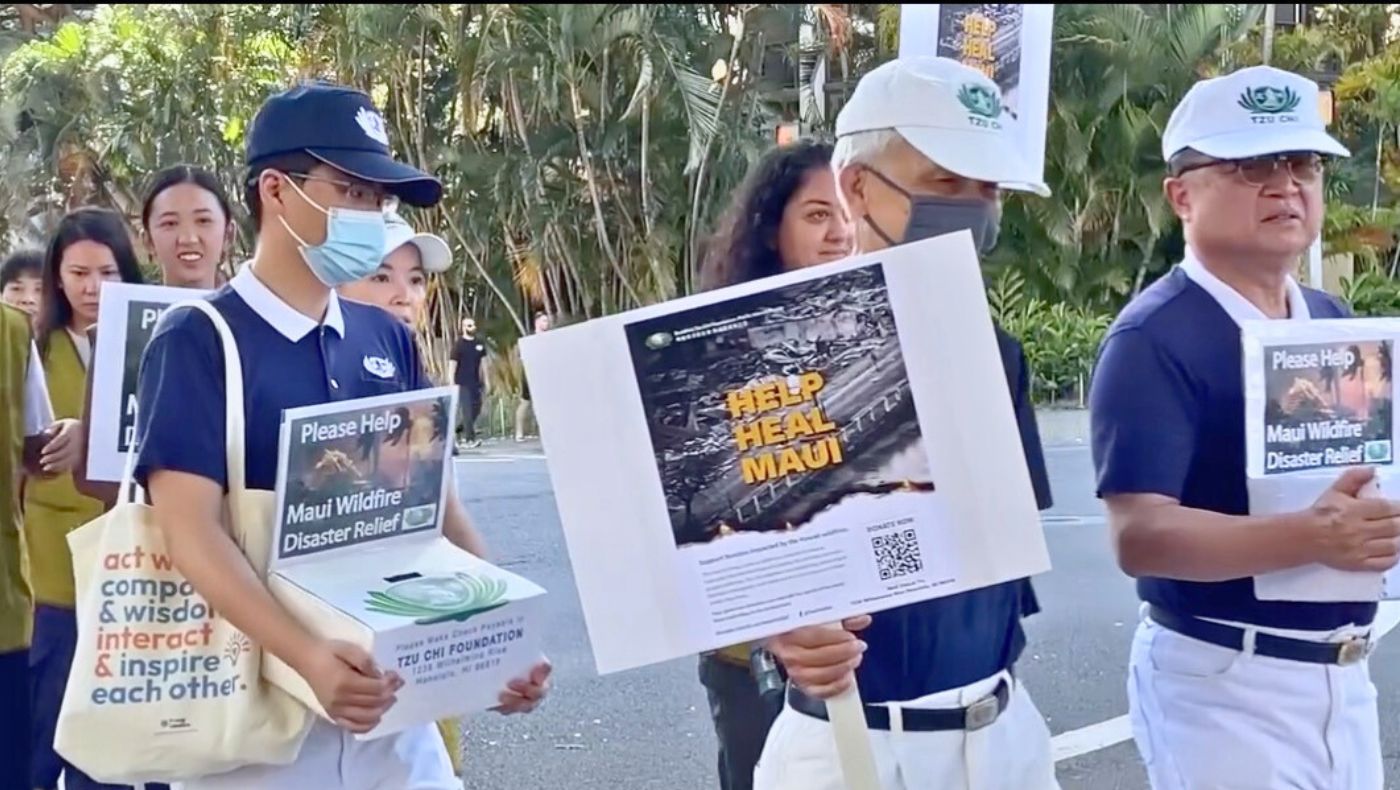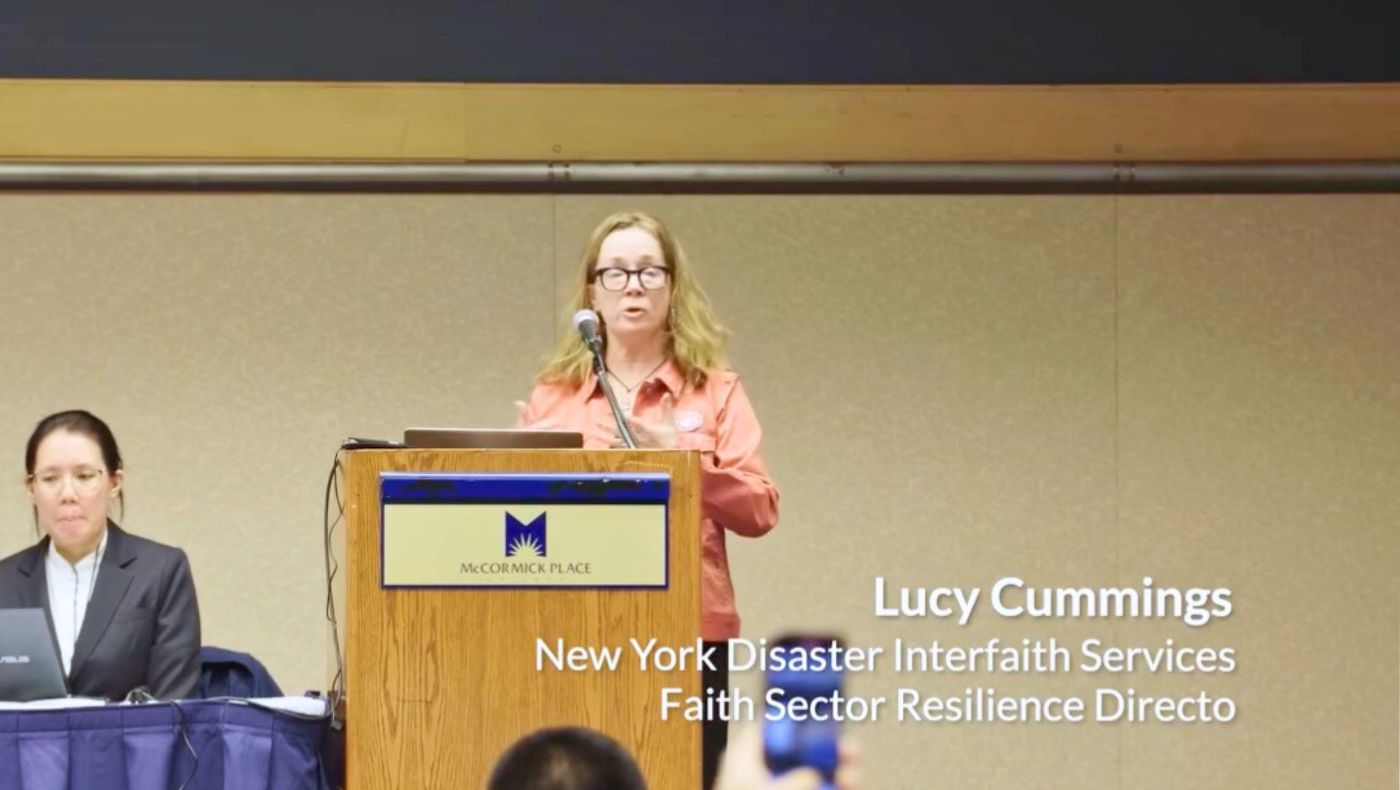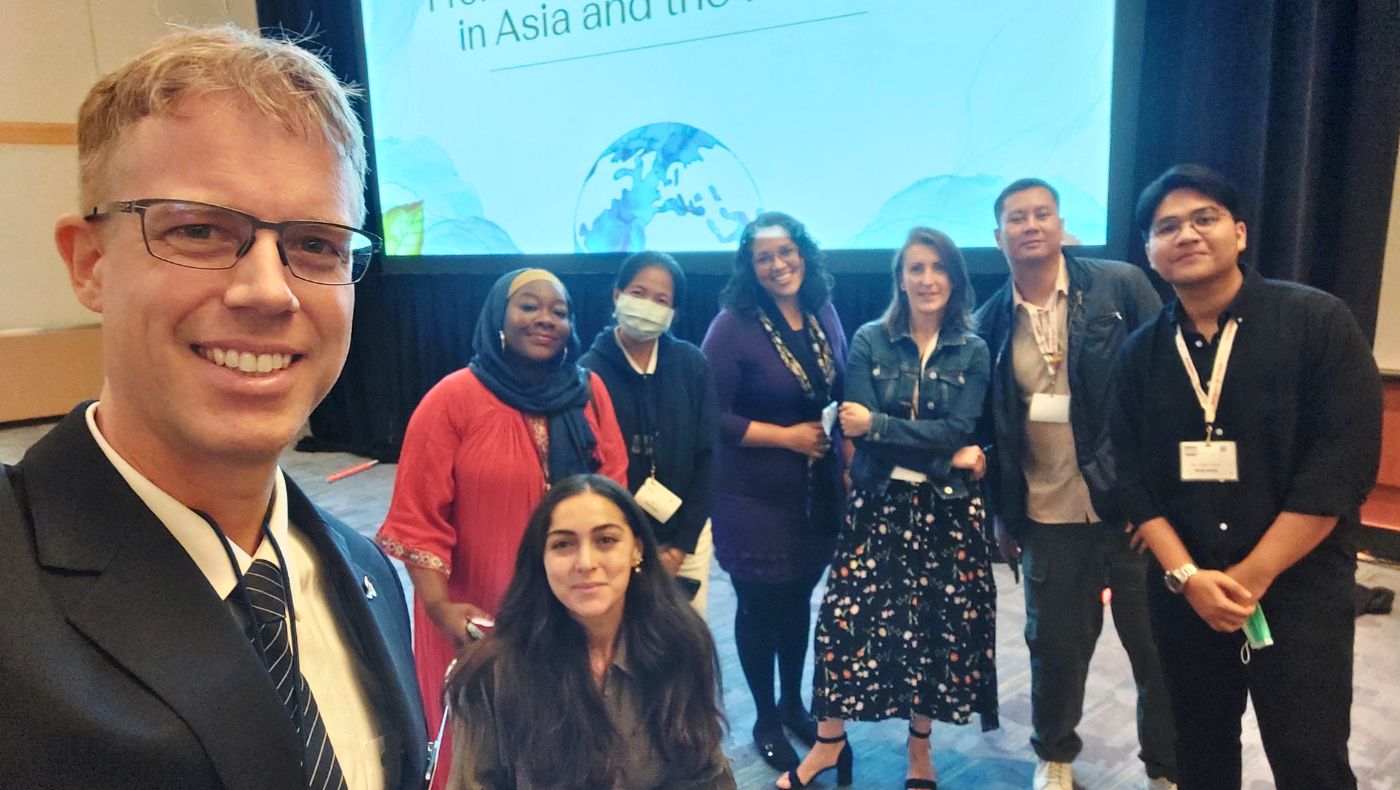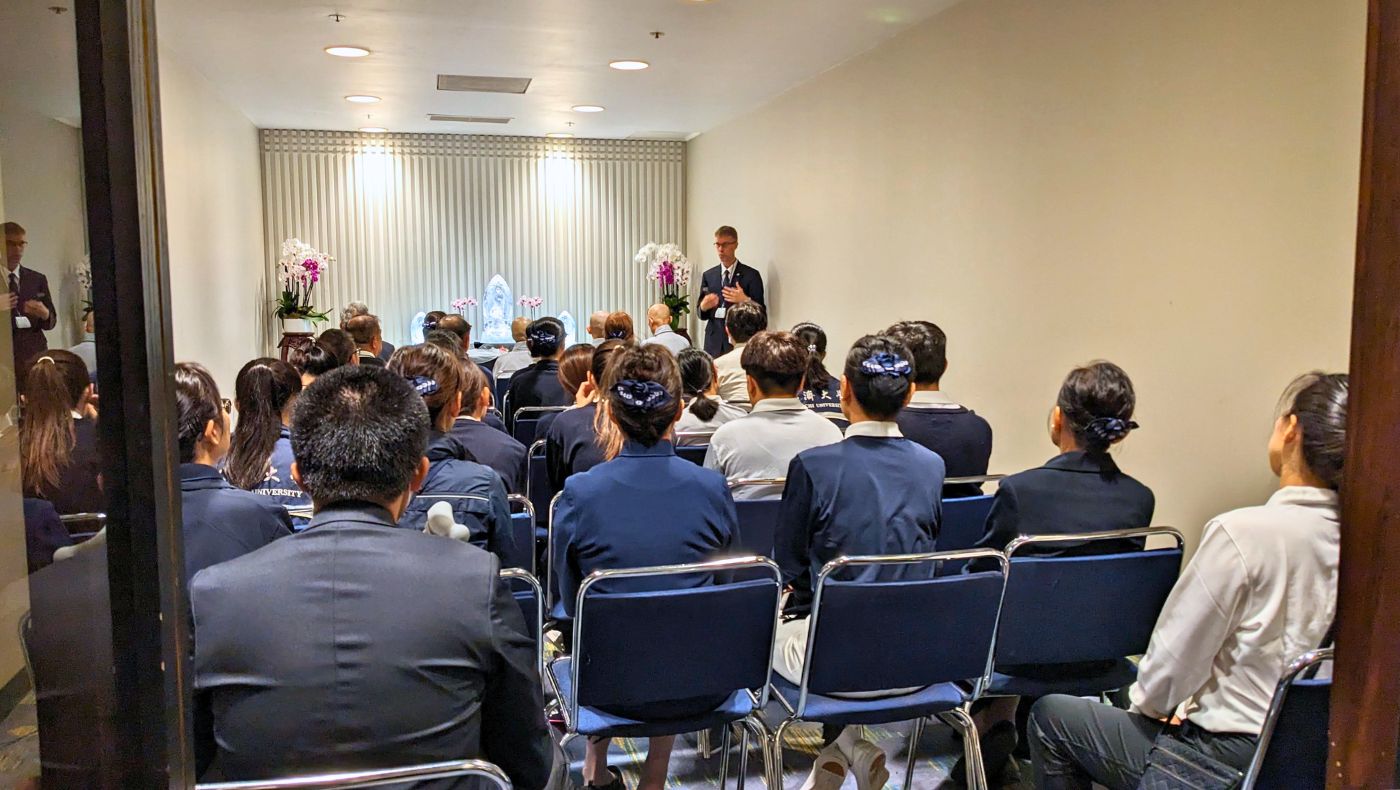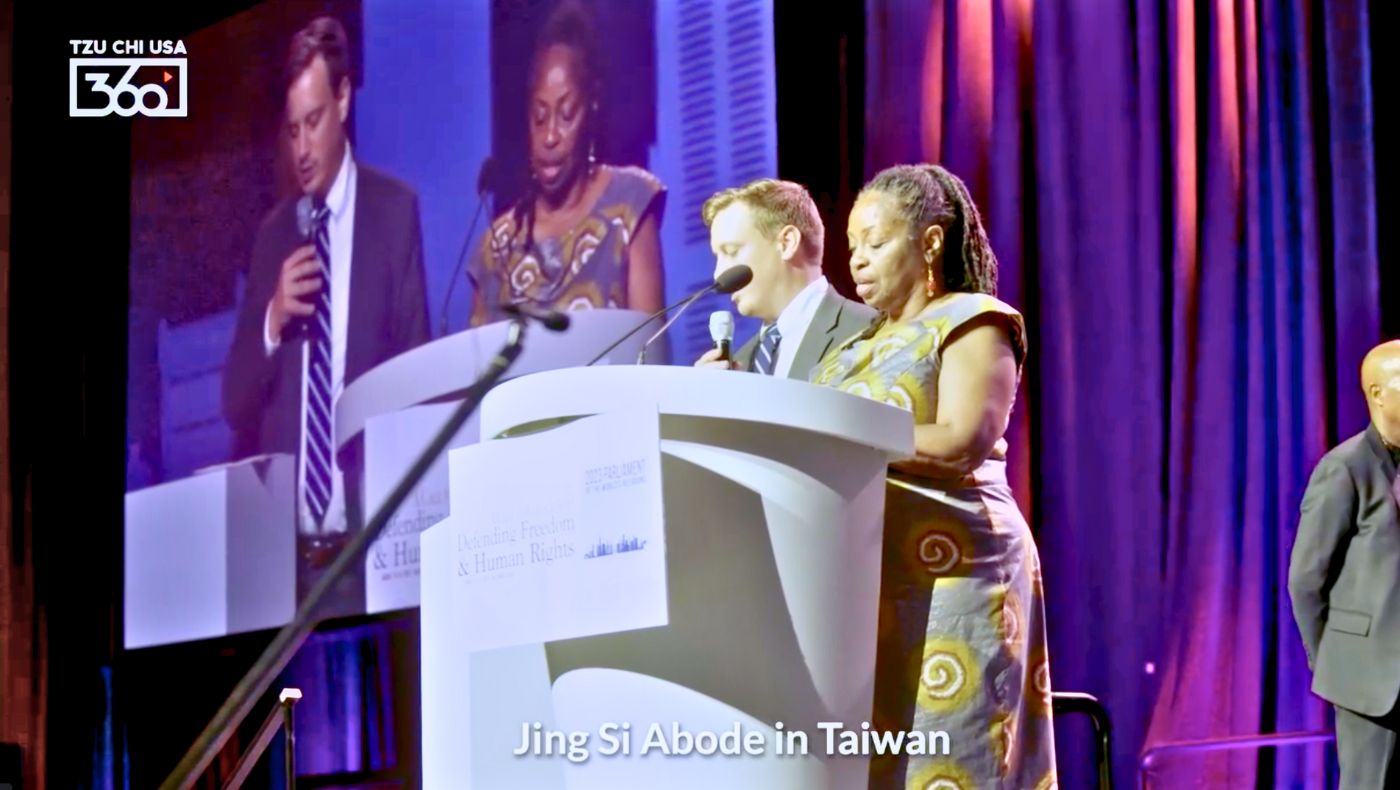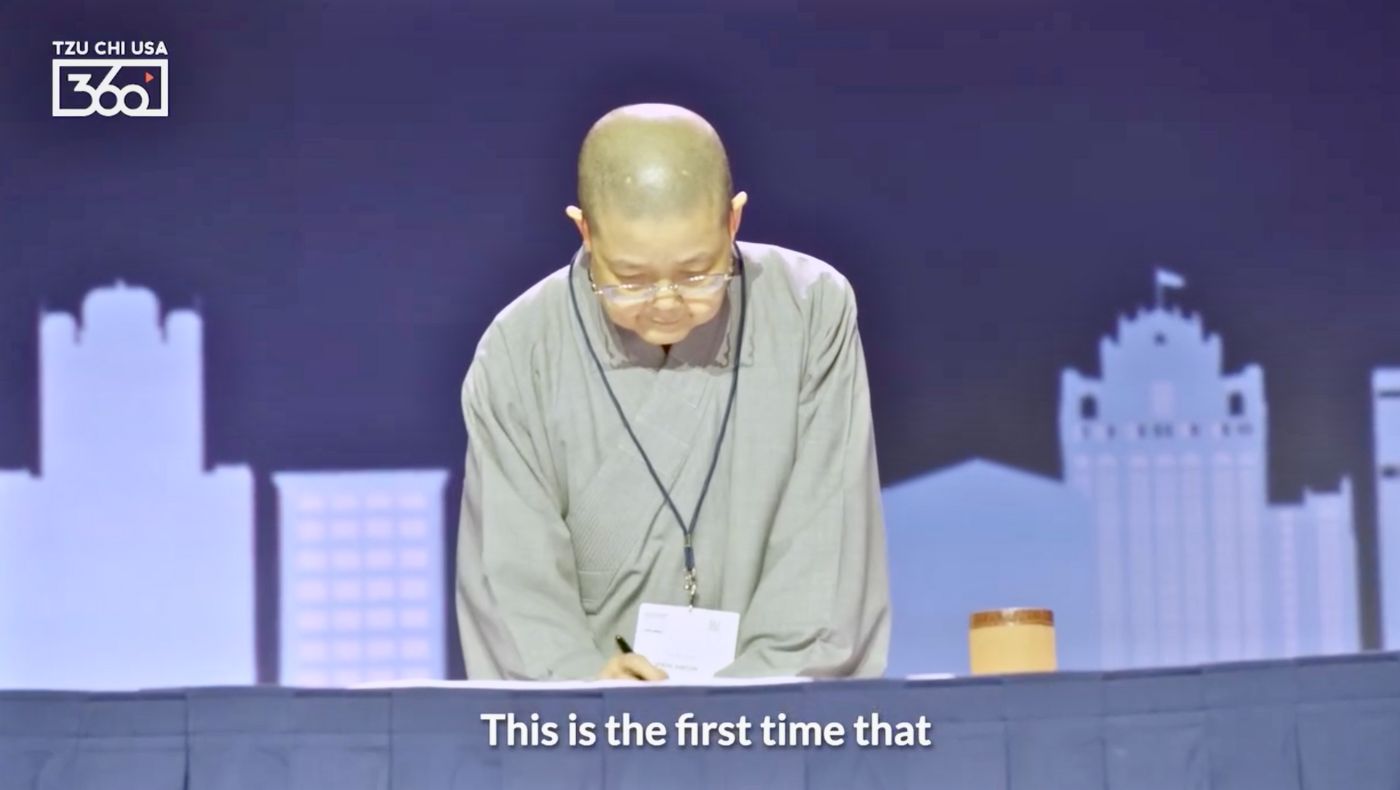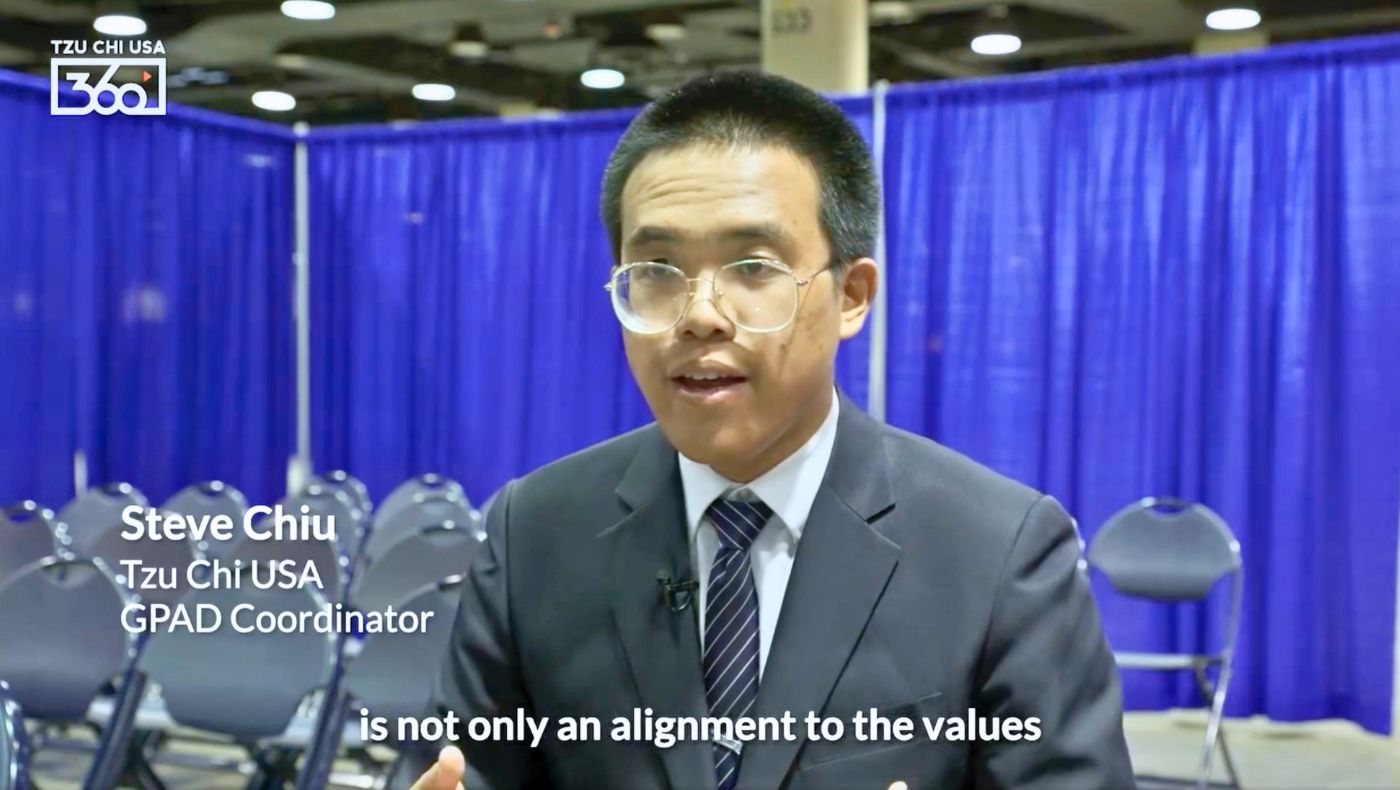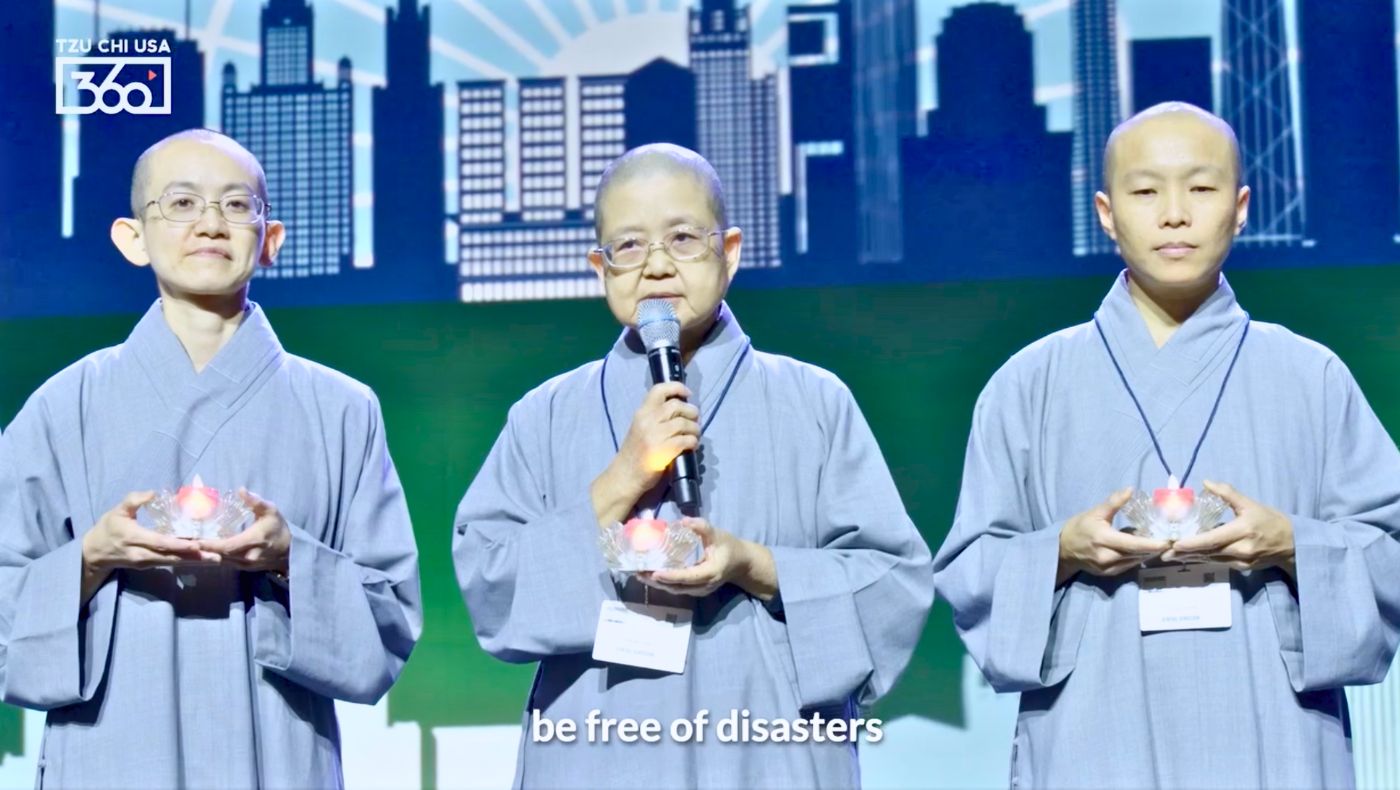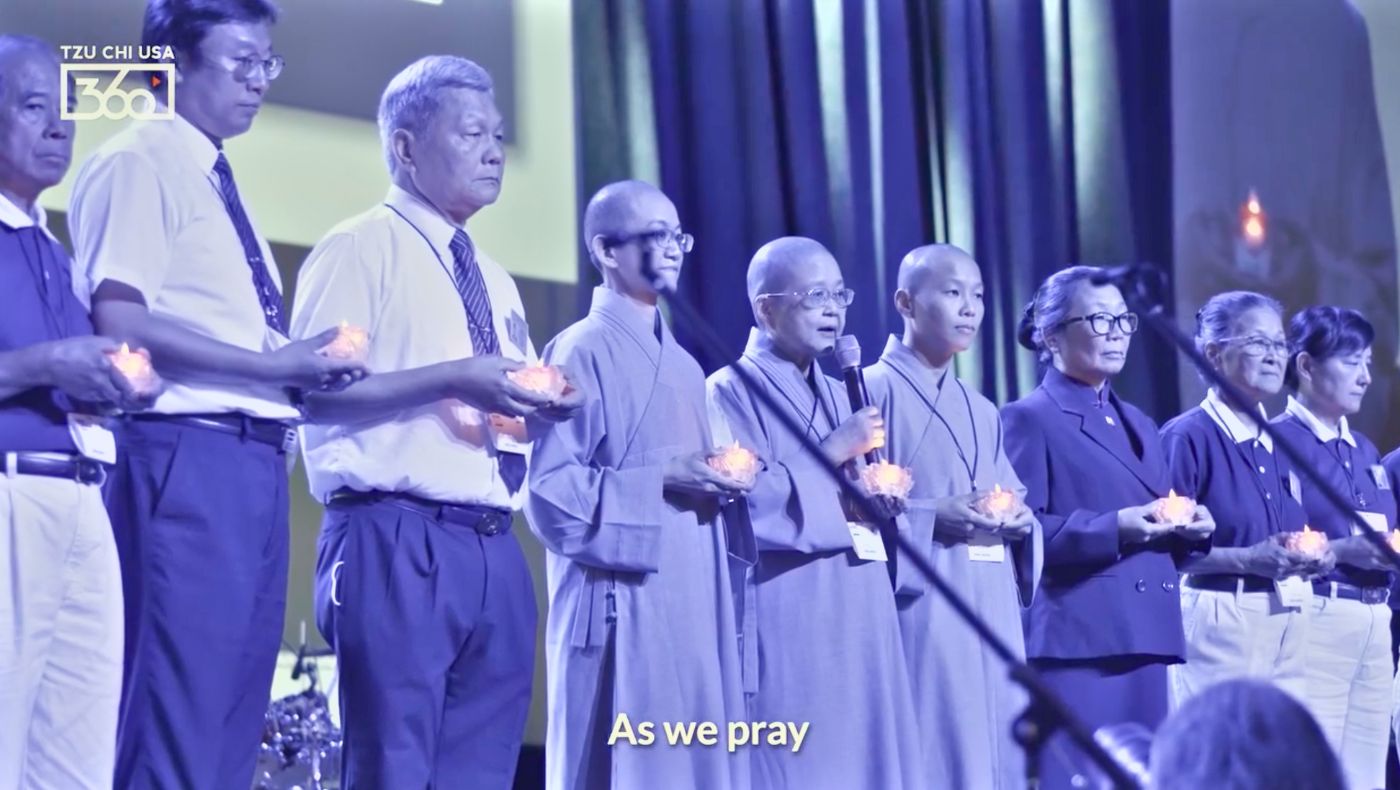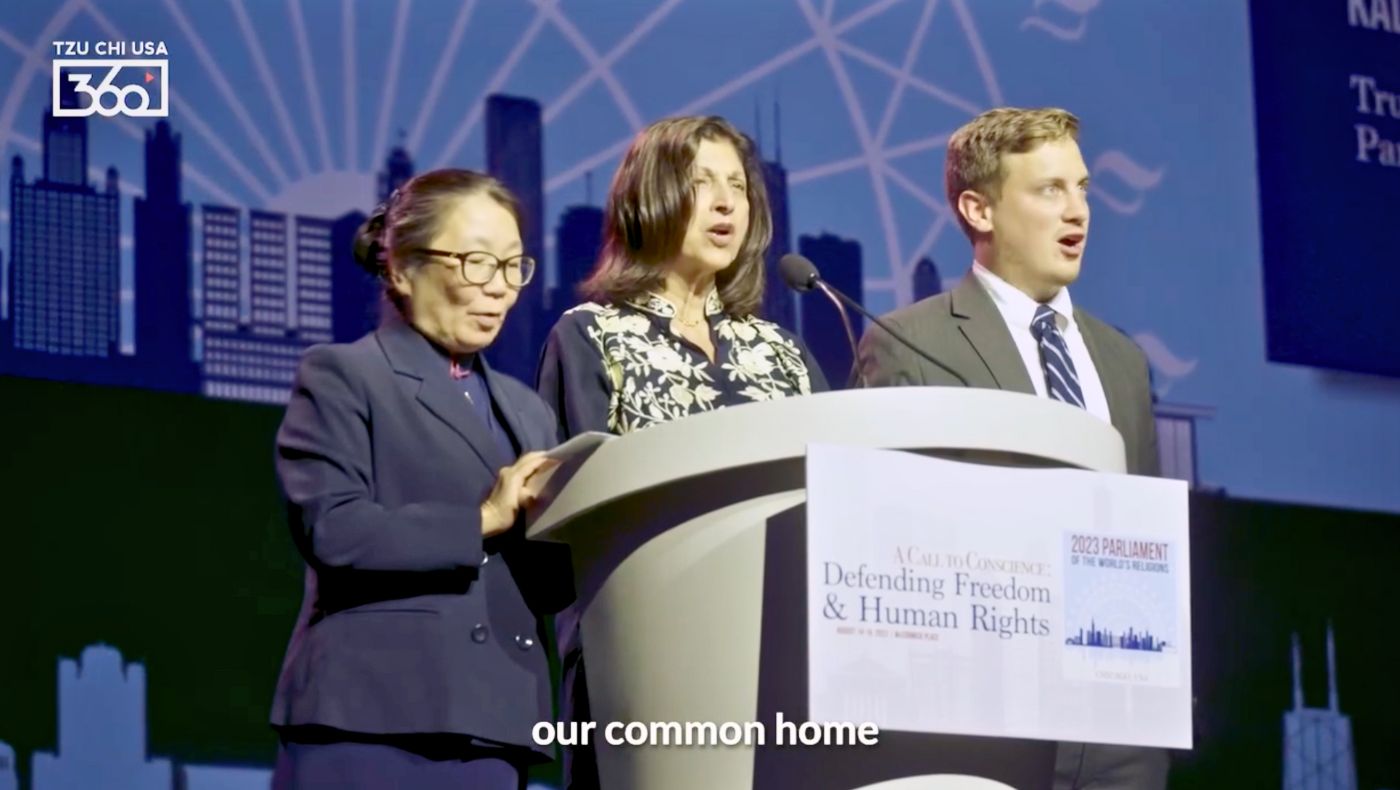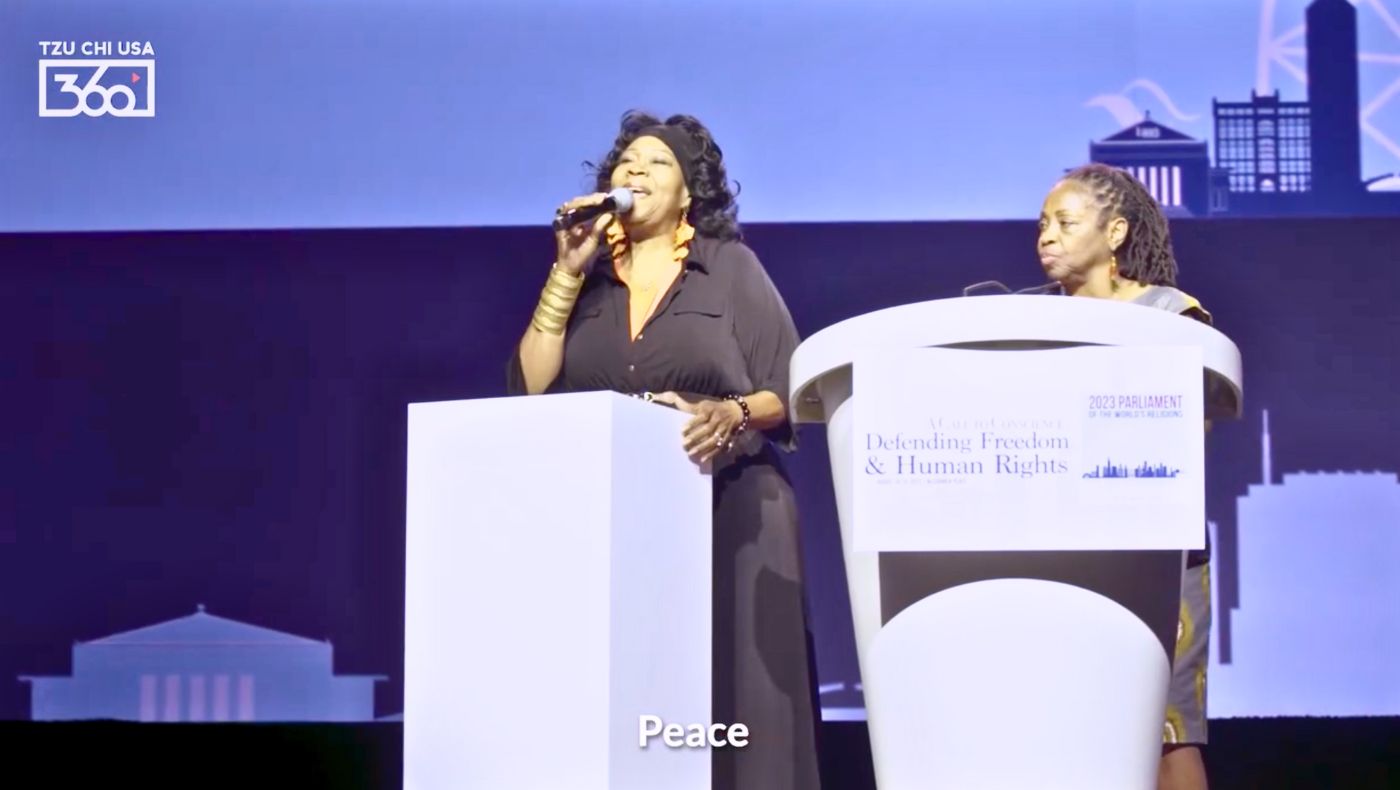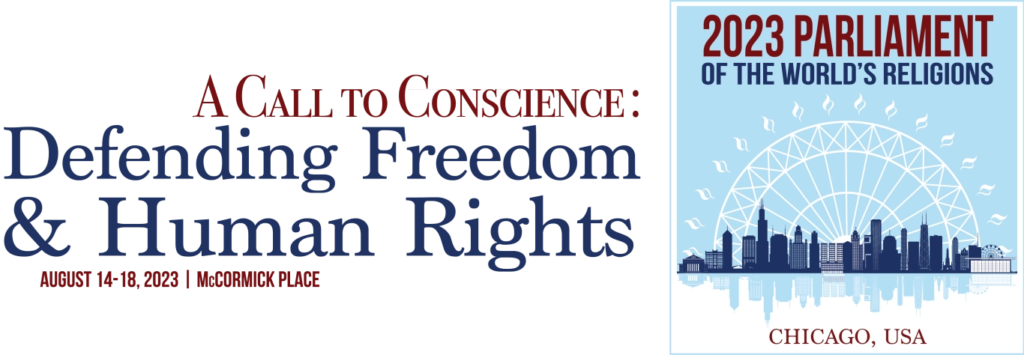
The Parliament of the World’s Religions was founded on a mission to cultivate harmony among the world’s religious and spiritual communities and to foster their engagement with the world and its guiding institutions to address the critical issues of our time. It dates back to the first convening of the World’s Parliament of Religions in Chicago in 1893, which created a global platform for engagement of religions of the East and West.
August 14-18, 2023, the Parliament of the World’s Religions will be hosted in Chicago, addressing the most urgent and critical global issue of our time through the theme: “A Call to Conscience: Defending Freedom & Human Rights,” calling people of faith and conscience to stand up together in all their diversity and defend freedom and human rights.
Tzu Chi USA is attending the Parliament of World’s Religion this year. Parliament Convenings attract participants from more than 200 diverse religious, indigenous, and secular beliefs and more than 80 nations. Registrants enjoy access to all the plenary sessions, hundreds of breakout sessions, art & cultural exhibits, performances, a film festival, and countless opportunities to connect with individuals and organizations committed to justice, peace, and sustainability at the world’s largest and most inclusive interfaith conference.
Tzu Chi is expecting to have Dharma Masters and Pure Practitioners from the Abode, and other members from Taiwan HQ to attend the conference together. Tzu Chi will be hosting exhibition booths, panel discussions, sign language performances and other activities during the conference.
Tzu Chi’s Planned Actions and Activities
8/14 1 pm | In the Era of Worsening Disasters, Strengthening Climate Resilience
Location: Room E252
Speaker:
– Austin Chu, UNICEF USA
– Lucy Cummings, NYDIS
– Tony Lasher, American Red Cross
– Alex Tan, Tzu Chi University
Moderator: Sandy Lu, Buddhist Tzu Chi Charity Foundation
This panel will reflect on how faith based organizations can work within their communities to build climate resilience, strengthen collaborations with disaster relief agencies, amplify the response to crises, and ease the journey towards recovery.
8/14 5:30 pm | Can the Global Ethic Meet the Challenge of Intergenerational Interfaith Work
Location: Hall E Room 7
Speakers:
– Dr. Rey-Sheng Her, Buddhist Tzu Chi Foundation
– Kaleb Nyquist, Parliament of the World’s Religions
Moderator: Kaleb Nyquist
Does the Global Ethic hold the same meaning for older and younger generations, or are there significant differences in how different ages find moral common ground? Parliament trustees and members of Global Ethic Committee will lead this interactive listening session as we strive together to find a principled basis for intergenerational interfaith collaboration.
8/15 8am | Climate Change at the UN: Outcomes of COP27
Location: Green Tent
Speakers:
– Lynnaia Main, The Episcopal Church
– Saphira Rameshfar, Baha’i International Community
– Kehkashan Basu, Green Hope Foundation
– Steve Chiu, Buddhist Tzu Chi Foundation
Moderator: Emily Echevarria, Parliament of the World’s Religions
This session discusses the UN Framework Convention on Climate Change and how faith-based groups engaged in the advocacy process at COP27 in Egypt, and what plans for COP28 in Dubai look like.
8/15 10:30 am | Building Better Health Systems, The Faith Based Approach
Location: Green Tent
Speakers:
– Yuru Chou, Buddhist Tzu Chi Charity Foundation
– Edie Yau, Alzheimer’s Association
– Kenneth Fung, University of Toronto
– Asma Ahad, Islamic Food and Nutrition Council of America
Moderator: Sarah Chu, Buddhist Tzu Chi Charity Foundation
This panel will reflect on the role that Health Systems play in responding to the climate crisis and propose the critical role that faith based organizations play in the greening of medicine, transforming health systems to become more sustainable, and showcasing the different ways and strategies that can help usher in a just and equitable transition of health systems.
8/15 12:20 – 12:50 pm | Buddha Bathing Ceremony
Location: E272a
Speakers:
– Ven. Shih De Yuan
– Ven. Shih De Cheng
– Ven. Shih De Huang
Moderator: Allen Chung
The Buddhist Prayer Room will serve as a serene space where attendees, regardless of faith backgrounds, can engage in quiet reflection, meditation, and mindfulness practices. This is a place for you to find inner peace and nurture spiritual awareness. In doing so, you will experience Buddhism’s fundamental teachings to foster gratitude, respect and love. You’ll also get to experience the Buddha bathing ceremony which is a symbolic act to purify the heart and inspire good thoughts. Having a purified heart is one of the prerequisites to serve those in need with compassion and love.
8/15 3pm | Buddhism in Action: Turning Life Around in the Buddha’s Homeland
Location: E253b
Speakers:
– Ven. Shih De Yuan, Buddhist Tzu Chi Foundation
– Ven. Ayyā Dhammadīpā, Buddhist Global Relief
– Ms. Carrie Lee, Live to Love
– Ven. Lopön Jigme Tingdzin, Kung Fu Nuns
Moderator: Dr. Johan Alwall, Buddhist Tzu Chi Foundation
Despite being the birthplace of Buddhism and well-frequented by tourists and pilgrims, the southern Nepal and northern India region has a significant lack of resources, including education, medical facilities, job opportunities, and infrastructure development. This panel features three Buddhist organizations determined to turn life around for those in greatest need in India and Nepal.
8/15 7 – 11 pm | PWR SEA Forum Watch Live
Location: Room 261
Convener: Debra Boudreaux and Master Dhammadipa members of the Board of Trustees of the PWR.
8/16 1pm | The Global Ethic and the Path to Ordination to Monastic Life for Buddhist Women
Location: Hall E-Room 6
Speakers:
– Ven. Chao-Hwei
– Ven. Zinai
– Ven. Dhammadipa
– Dr. Darcie Price-Wallace
Moderator: Professor Hsiao-Lan Hu
This panel aims to bring to light what full ordination and monastic training mean in Buddhist traditions, as well as the various challenges that Buddhist women face in getting ordained and acquiring proper training. The panelists will include both scholars and practitioners from different Buddhist traditions so that the discussion will cover both the historical overview as well as real-life experiences.
8/16 1pm | Sowing the Seeds for Catalytic Transformations: Faith Consultation on Food Systems
Location: E450b
Speakers:
– Kelly Moltzen, Interfaith Public Health Network
– Asma Ahad, IFANCA
– Ven. Shih De Cheng
– Maurice Bloem, Church World Service
Moderator: Steve Chiu, Buddhist Tzu Chi Foundation
This panel will highlight the role faith based organizations and values play in creating sustainable food systems, sharing various ways faith groups have influenced the food systems discourse, including contributions to the White House Conference on Hunger, Nutrition, and Health, organizing regional dialogues in the MENA around food and faith.
8/16 1 pm | Buddhist-Catholic Dialogue: It’s Time to Talk
Location: Hall E-Room 4
Speakers:
– Dr. Rey-Sheng Her, Deputy CEO, Tzu Chi Foundation
– Ven. Shih Huize, Hsi Lai Temple
– Michael Terrien, Obl. OSB
– Father Alexei Smith
Moderator: Chuck Hutchcraft
The Buddhist-Catholic Dialogue on Climate Change invites attendees of the 2023 Parliament of World’s Religions to participate in It’s Time to Talk, an emerging series of dialogues exploring what it is of the Buddhist and Catholic traditions that compels us to confront the climate crisis.
8/16 1 – 2 pm | Eco-Fashion Show
Location: Green Tent
Performers:
– Chicago Tzu Chi Volunteers
– Tzu Chi University Students
Da Ai Technology Co. was established in 2008 as a front-runner in the fight against climate change and pollution through innovative and compassionate action by manufacturing clothing and blankets from 100% recycled PET bottles. Since its establishment, the company has provided over one million top-quality eco-blankets to disaster survivors and other people in need around the world, while also providing consumer products including clothing of all different kinds as well as shoes, sunglasses, and specialty products. During Parliament of the World’s Religions, volunteers from Buddhist Tzu Chi Foundation, Chicago, will hold two fashion shows on August 16 and 17, 1-2 pm at the Green Tent in the Climate Village, featuring beautiful, comfortable, and durable clothing from Da Ai Tech, made of 100% recycled PET.
8/16 3pm | The Problem with Plastics
Location: E266
Speakers:
– Frankie Orona, Indigenous leader and Executive Director of Society of Native Nations
– Debra Boudreaux, Buddhist Tzu Chi Foundation
– Jo Banner,Co-Founder & Co-Director, The Descendants Project
– Jane Patton, US Fossil Economy Campaign Manager, Center for International Environmental Law
This discussion about a Plastics Treaty and eliminating plastic waste to help the environment reviews why a global treaty is necessary, what measures it could contain, and how it can be implemented. Presenters discuss the challenges posed by plastic waste created by consumer goods, packaging materials, and other sources.
8/16 4pm | Transforming Food Systems With Spiritual Values At The UN
Location: Green Tent
Speakers:
– Emily Echevarria ,Director of Climate Action, Parliament of the World’s Religions.
– Kelly Moltzen, Convener, Interfaith Public Health Network
– Maurice Bloem, Representative to the United Nations, Church World Service
Moderator: Steve Chiu, Buddhist Tzu Chi Foundation
This session will include a sharing of the Interfaith Statement developed for the 2021 UN Food Systems Summit, discuss the relevance of the Inner Development Goals to achieving nourishing, regenerative, and equitable food systems, and include time for workshop participants to explore the values we need to bring into our future food systems.
8/16 5pm | An Evaluation of Faith-based Advocacy on Climate Change
Location: Green Tent
Speakers:
– Lynnaia Main, Episcopal Church Representative to the United Nations at The Episcopal Church
– Bruce Knotts, President at Citizens for Global Solutions
– Beth Blissman, United Nations NGO Representative at Loretto Community
– Saffet Catovic, Justice For All
– Alex Tan, Buddhist Tzu Chi Foundation
Moderator: Steve Chiu, Buddhist Tzu Chi Foundation
This session features key actors in the interfaith climate change sphere, reflecting on and evaluating the work of faith-based advocacy on our triple planetary crisis and outlining a path forward together.
8/17 10:30 | Buddha Bathing Ceremony
Location: E272a
Speakers:
– Ven. Shih De Yuan
– Ven. Shih De Cheng
– Ven. Shih De Huang
Moderator: Allen Chung
The Buddhist Prayer Room will serve as a serene space where attendees, regardless of faith backgrounds, can engage in quiet reflection, meditation, and mindfulness practices. This is a place for you to find inner peace and nurture spiritual awareness. In doing so, you will experience Buddhism’s fundamental teachings to foster gratitude, respect and love. You’ll also get to experience the Buddha bathing ceremony which is a symbolic act to purify the heart and inspire good thoughts. Having a purified heart is one of the prerequisites to serve those in need with compassion and love.
8/17 8am | From Sharm-el-Sheikh to Dubai: Food Systems at the UN
Location: E253b
Speakers:
– Emily Echevarria, Parliament of the World’s Religions
– Kehkashan Basu, Green Hope Foundation
– Saphira Rameshefar, Bahai International Community
Moderator: Steve Chiu, Buddhist Tzu Chi Foundation
This panel will focus on the role of global food systems in the discussions at the 2022 UN Climate Change Conference in Egypt (COP27), the outcomes of those discussions, and how food will play a role at the upcoming 2023 UN Climate Change Conference in the UAE (COP28).
8/17 1 – 2 pm | Eco-Fashion Show
Location: Green Tent
Performers:
– Chicago Tzu Chi Volunteers
– Tzu Chi University Students
Da Ai Technology Co. was established in 2008 as a front-runner in the fight against climate change and pollution through innovative and compassionate action by manufacturing clothing and blankets from 100% recycled PET bottles. Since its establishment, the company has provided over one million top-quality eco-blankets to disaster survivors and other people in need around the world, while also providing consumer products including clothing of all different kinds as well as shoes, sunglasses, and specialty products. During Parliament of the World’s Religions, volunteers from Buddhist Tzu Chi Foundation, Chicago, will hold two fashion shows on August 16 and 17, 1-2 pm at the Green Tent in the Climate Village, featuring beautiful, comfortable, and durable clothing from Da Ai Tech, made of 100% recycled PET.
8/17 3pm | Greening of Congregations
Location: E265
Speakers:
– Ven. Shih De Cheng
– Rabbi Daniel Swartz
– Rev. Abby Mohaupt
– Jessica Maudlin
– Sarah Paulos
Moderator: Dr. Laurel Kearns
The “greening” of houses of worship of many faith traditions has now become an international movement. The shift to environmental sustainability includes education in the teachings of the community’s religion on the vision and values of our relation to the natural world and environmental justice and the integration of these teachings into liturgy, prayer and study. In these three panels, international speakers from different faith traditions will present on the programs and initiatives of their religious communities and organizations.
8/17 5pm | Women’s Perspectives on the Global Ethic
Location: E251
Speakers:
– Ven. Shih De Huang
– Sahar Alsahlani
– Mary Doak
– Mahrukh Motafram
Moderator: Sharan Kaur Singh
Four female Trustees of the Parliament of the World’s Religions share their perspectives on the Parliament’s signature document since 1993, Towards a Global Ethic (An Initial Declaration), also called the Global Ethic. Each Trustee hails from a different religion. The Trustee-panelists are Mary Doak (Roman Catholic), Sahar Alsahlani (Muslim), Shih De Huang (Buddhist), and Mahrukh Motafram (Zoroastrian), all of whom serve on the Parliament’s Global Ethic Committee. The panel is moderated by another Trustee, Sharan Singh (Sikh).
8/17 5:30pm | A Wealth of Collaborations: Translating the Parliament’s Global Ethic Declaration into Chinese
Location: E253a
Speakers:
– Dr. Rey-Sheng Her, Buddhist Tzu Chi Foundation
– Alex Tan, Buddhist Tzu Chi Charity Foundation
– Yuru Chou, Buddhist Tzu Chi Charity Foundation
Moderator: Debra Boudreaux, Buddhist Tzu Chi Foundation
This pannel will discuss the challenges and opportunities they encountered while translating the Global Ethic’s commitments so it could be easily accessible to all those whose written language uses Chinese characters.
18 August 2023 11:15 am- 12:00 pm | “Give Love” Sign Language Performance
Location: E253a
Performers:
– Chicago Tzu Chi Volunteers
– Tzu Chi University Students
Tzu Chi’s sign language tradition originated in the early days when Dharma Master Cheng Yen and Tzu Chi volunteers encountered challenges communicating with deaf and hard of hearing individuals while on their charitable missions. Master Cheng Yen encouraged the volunteers to learn sign language and then express certain texts that way to communicate effectively in a universal manner that transcends any particular spoken language. Since then, Tzu Chi volunteers present Dharma scriptures and other meaningful songs using sign language.
9am – 5pm | Green Buddhism: Turning Trash Into Treasure
Location: Kids Camp Booth
Our booth will take kids through the lifecycle of plastics and bring awareness of the environmental challenges associated with plastics. They will have hands-on experience on transforming trash into valuable resources, which includes collecting bottle caps and turning them into an artwork, turning plastics destined as trash into ornaments. Additionally, we will take you on a spiritual journey, imagining life as a plastic, the tribulations and challenges it faces over its lifetime.
All the events are in CDT time zone.
Videos
Stay up to date on the latest video interviews and stories from 2023 Parliament of the World’s Religions.
Activities
August 14
Dharma Masters from Tzu Chi’s Jing Si Abode took part in the lively opening ceremony, which followed a colorful and celebratory lion dance. Dr. Rey-Sheng Her, the Vice CEO of the Buddhist Tzu Chi Charity Foundation, offered brief remarks to the audience, and Masters De Yuan, De Cheng, and De Xuan joined the procession through the hall.
Afterwards, sessions kicked off with a panel presentation on “In the Era of Worsening Disasters, Strengthening Climate Resilience,” which featured speakers Austin Chu (UNICEF USA), Lucy Cummings(NYDIS), and Alex Tan (Tzu Chi University).
Later, a Climate Action Assembly was hosted in the main hall, where the keynote speaker was groundbreaking primatologist Dame Jane Goodall. Via video, she shared the impact her religious values have had on her life’s work, and urged participants to reconnect with these same values and parlay them into Environmental Protection and Climate Action. Tzu Chi USA CEO Debra Boudreaux also offered a blessing to the audience alongside fellow presenters.
Finally, we joined a workshop examining the Global Ethic at “Can the Global Ethic Meet the Challenge of Intergenerational Interfaith Work.” In it, participants broke out into discussion groups to examine challenges to society’s adoption of the Global Ethic’s main tenets.
August 15
Yuru Chou of the Buddhist Tzu Chi Charity Foundation on Tuesday morning at the 2023 Parliament of World’s Religions, spoke on a panel called “Building Better Health Systems, the Faith Based Approach,” and her fellow panelists, including Asma Ahad ) and Edie Yau.
Tzu Chi volunteers and fellow PoWR attendees took a peaceful pause for a Buddha Bathing Ceremony on prayer rooms. Dharma Masters from the Jing Si Abode, including Shih De Yuan, Shih De Cheng, and Shih De Huang led participants through the auspicious ceremony.
Shortly after, Shih De Cheng visited the Kids Corner, where she hosted an intimate storytelling session for children whose parents are attending the Parliament.
Later, an eye-opening discussion took place at “Buddhism in Action: Turning Life Around in the Buddha’s Homeland.” There, panelists discussed the realities faced by the people living in India and Nepal, including extreme poverty, gender-based discrimination, and more. Upstairs, students from Tzu Chi University put on a sign language performance. Making sweeping movements in sync, onlookers joined in during the second song, offering them light exercise to a soothing message from Tzu Chi’s melodious songs.
August 16
When it comes to responding to crisis, particularly one that is as sweeping as that of climate change, panelists at “In the Era of Worsening Disasters, Strengthening Climate Resilience,” a session at the 2023 Parliament of the World’s Religions had a lot to say with regard to the contributions of faith-based communities and organizations.
August 17
Introduced in 1993 by the Parliament of the World’s Religions (PoWR), the Global Ethic is a declaration stating “the universal values and principles shared by the world’s religious, spiritual, and cultural traditions.” Upon its thirtieth anniversary at the #2023PoWR in Chicago, IL, Dharma Master De Yuan signed it on behalf of Tzu Chi.
Later on, at a panel discussion called “Can the Global Ethic Meet the Challenge of Intergenerational Interfaith Work,” participants broke out into groups to discuss the challenges but also the solutions to overcoming the adoption and implementation of the Global Ethic.
Tzu Chi for the South-East Asia Regional Symposium
You’re invited to join Tzu Chi for the South-East Asia Regional Symposium during the 2023 Parliament of the World’s Religions! Become part of the conversation via an interactive Zoom session as distinguished speakers and changemakers delve deeper into the interplay between faith and service, and discuss a poignant theme that affects us all: “A Call to Conscience: Defending Freedom and Human Rights.”
The Parliament of the World’s Religions will hold its 9th global convening in Chicago from Monday, August 14 through Friday, August 18, at the McCormick Place Lakeside Center, uniting participants from more than 200 diverse religious, indigenous, and secular beliefs and more than 80 nations.
August 16, 2023 (East Asia)
8 AM–12 PM UTC+8
(Taiwan/Philippines/Malaysia/etc.)
August 15, 2023 (USA)
7–11 PM UTC−5
(Chicago)
or
*Southeast Asia Regional Symposium 2023 – Online.
Access to quality medical care is a major issue for vulnerable populations in South and East Asia and around the world. In this session, panelists will discuss medical access and technology for vulnerable populations in the region, including older adults, Rohingya refugees, and refugee populations in Thailand.
Dir. Hui-chun Chung, Hualien Tzu Chi Medical Center, Taiwan
Dr. Seay Liang Foo, Director of Tzu Chi Free Clinic, Kuala Lumpur, Malaysia
Prof. Shuzhen Wu, Free Clinic Task Force, Tzu Chi Thailand
Advancements in technology often have a profound impact on the development of human society. On the one hand, automation and improved technologies increase productivity and facilitate the production of goods and services. On the other hand, it might remove job opportunities, deepen inequalities and injustices, and affect social stability.
A recent potentially disruptive technology is artificial intelligence (AI), which may bring about high levels of automation of previously uniquely human tasks, including writing, decision-making, and opinion dissemination. This technology, as well as other recent technologies, such as the development of humanoid robots, also begins to generate questions about the uniqueness of human consciousness and nature. In this session, panelists will discuss the impacts of these new and emerging technologies from a variety of cultural and religious perspectives.
Speakers:
Professor Chao-yu Wu
Yuan Ze University, Taiwan
Chien-Te (Kent) Lin
Director of the Institute of Religion and HumanitiesBuddhist Tzu Chi University, Taiwan
Hung-Pin (Charles) Wen
Computational Intelligence and Automation Lab
National Chiao Tung University, Taiwan
Music and spirituality are closely connected, and music and dance are also crucial expressions of local and ethnic religion and culture. In this session, we will experience performances by several South-East Asian groups, as well as hear the performers’ thoughts on spirituality and music.
Vox Nativa Association, Taiwan
Thai Dance by Primary Rajaprajanugroh 24 School
Phayao, Thailand
Sirena Huang
Award-Winning Concert Violinist
One Family – Interfaith video by Tzu Chi Indonesia
Closing:
Venerable Dhammadipa Sak, President of U.S. Zen Institute
Debra Boudreaux, CEO, Buddhist Tzu Chi Foundation, USA
The industrial and technological developments of the past century have brought about unprecedented improvements in living standards, productivity, food security, and many other areas of life. At the same time, this development has also brought about the triple planetary crisis of climate change, pollution, and biodiversity loss, threatening the very foundations upon which our lives depend.
The ancient wisdom of religions and indigenous populations contributes valuable approaches toward resolving this crisis. It enables bringing a sense of health and balance, not only to people’s lives, but also to the planet.
In this session, panelists will share solutions and practices from their respective faith traditions, weaving a tapestry of South-East Asian approaches toward the problems plaguing our world.
Professor Upendra Rao
Jawaharlal Nehru University
New Delhi, India
Professor Lam Wing Kwan Anselm
Director of the Center for Catholic Studies
Chinese University of Hong Kong
Professor Xue Yu
Director of the Center for the Study of Chan Buddhism and Human Civilization
Chinese University of Hong Kong
Dr. Jacinta Tangil
University Malaysia Sabah (UMS)
South-East Asia Regional Symposium Speakers
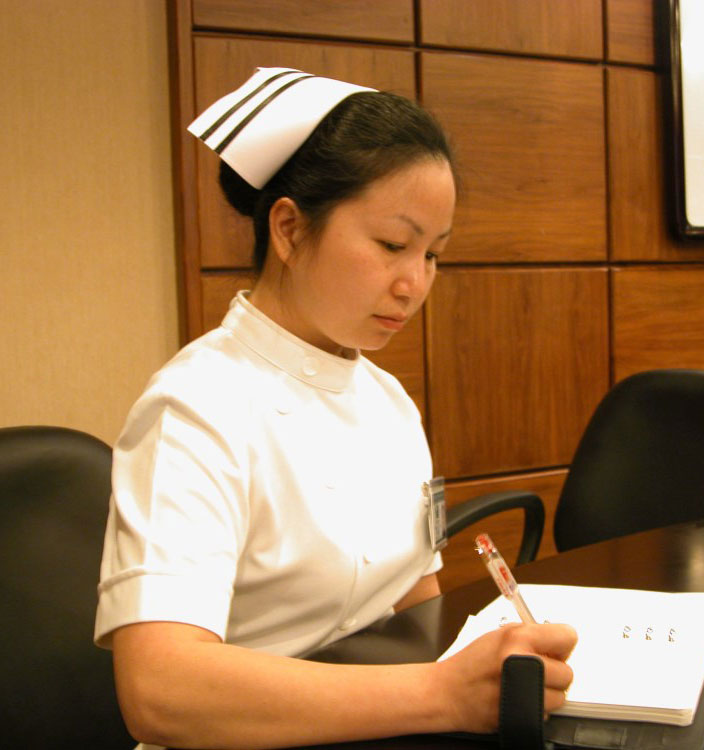
Professor Hui-Chun Chung
Department of Nursing
Buddhist Tzu Chi University
Director, Department of Nursing
Buddhist Tzu Chi General Hospital, Hualien, Taiwan
Hui-Chun Chung has served Hualien’s Tzu Chi Hospital for nearly 30 years and has undertaken multiple business projects. She was the chairman of the Hualien County Nurses Association, the chairman of the East Branch of the Taiwan Infection Control Association, and a member of the Advanced Nursing Committee of the Taiwan Nursing Association. She served nursing staff in Eastern Taiwan, and conveyed and communicated opinions in professional groups. At the same time, she teaches as an assistant professor in the Department of Nursing at Tzu Chi University. In the field of nursing administration and management, she works with graduate students and professors alike to innovate and improve clinical practice.
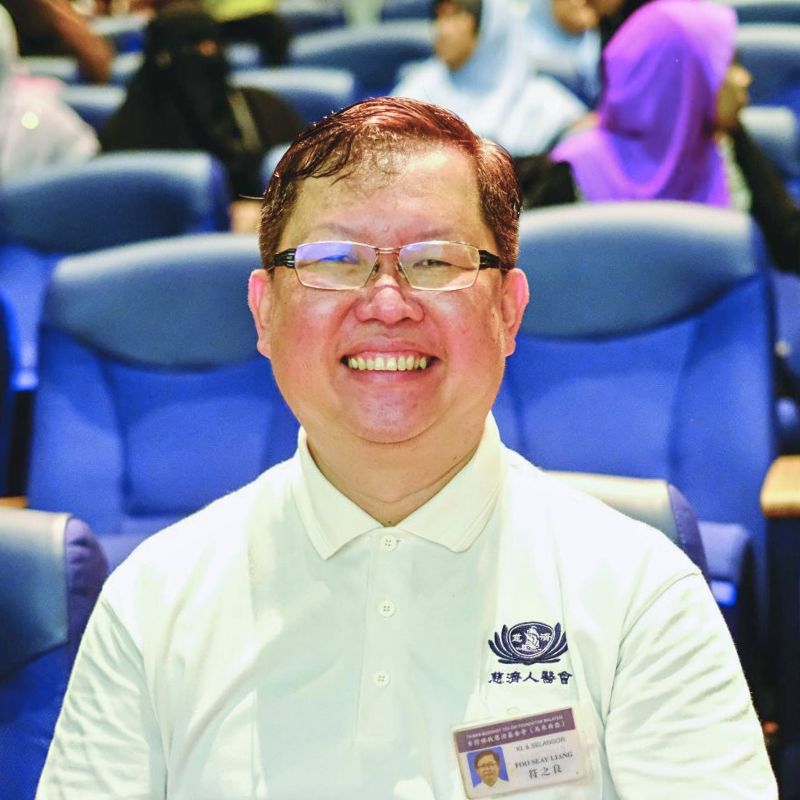
Dr Foo Seay Liang
Director of Tzu Chi Free Clinic, Kuala Lumpur, Malaysia
Dr. Foo Seay Liang (符之良) went to Chung Shan Medical University in Taiwan for a medical education more than 20 years ago. Afterwards he returned to his native Malaysia and practiced medicine as a general practitioner. In early 2013, he started volunteering regularly at the Tzu Chi Free Clinic and got to work with refugees firsthand. He saw many suffering from chronic diseases. He felt that more comprehensive care should be planned and offered to those patients, so he quit his well-paid job and became the director and a physician at the Tzu Chi clinic in 2015.
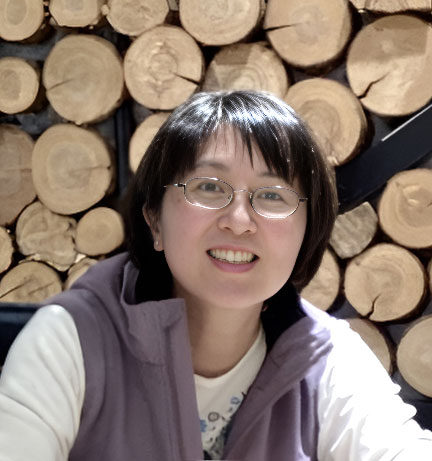
Professor Chao-yu Wu
Yuan Ze University, Taiwan
Chaoyu Wu obtained her Ph.D. in Sociology from the University of Bristol in the United Kingdom. While in the UK, she received guided meditation that sparked her interest in Buddhism. She now lectures at Yuan Ze University in Taiwan.
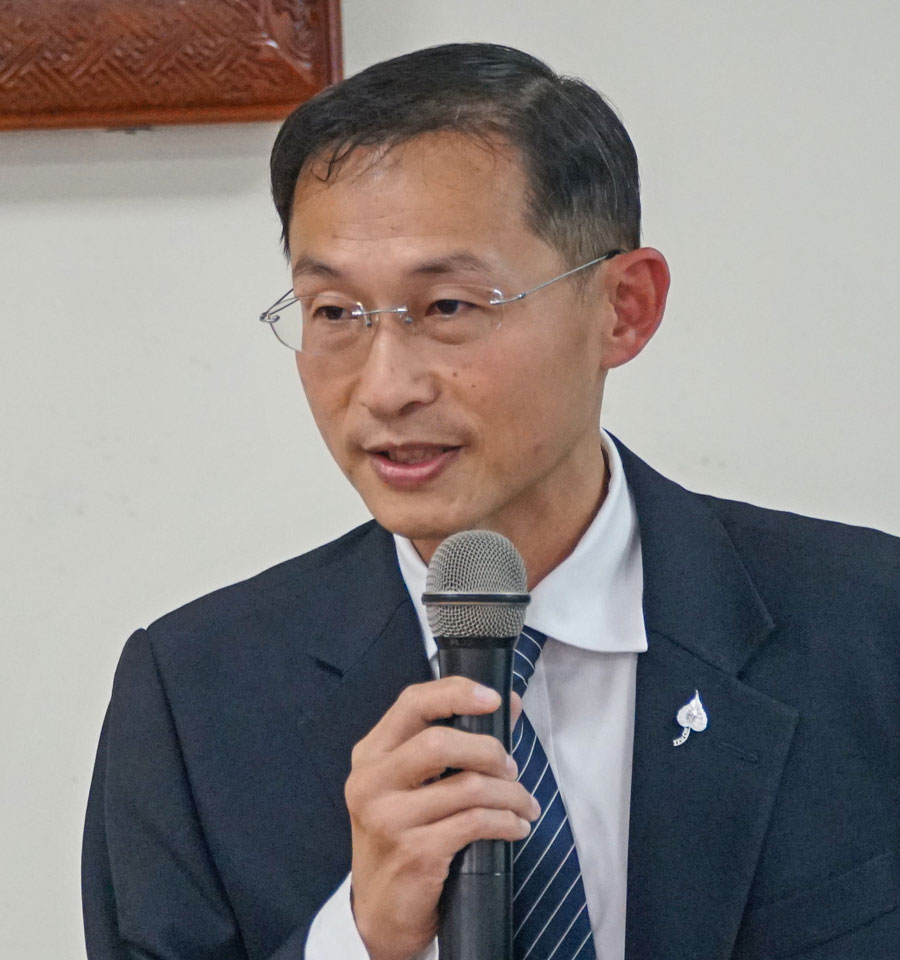
Chien-Te (Kent) Lin
Director of the Institute of Religion and Humanities
Buddhist Tzu Chi University, Taiwan
Chien-Te Lin, also known as Kent Lin, is a professor and Director of the Institute of Religion and Humanities at the Buddhist Tzu Chi University in Taiwan. His main research interests lie in Buddhist philosophy, contemporary Buddhism in Taiwan, Chinese philosophy, and comparative religion (Buddhism and Taoism). His most recent books published in Chinese include “Tao and Emptiness: A Philosophical Dialogue between Laozi and Nāgārjuna” (Dharma Drum Publications, 2013); and “Mind, Consciousness and Liberation: A Comparative Look at Buddhist Theories of Mind and Consciousness” (National Taiwan University Press, 2020). He has also published some English articles in journals, such as Ethical Perspectives, Philosophia, Contemporary Buddhism, Asian Philosophy, Sophia, Business Ethics, the Environment & Responsibility, and more.
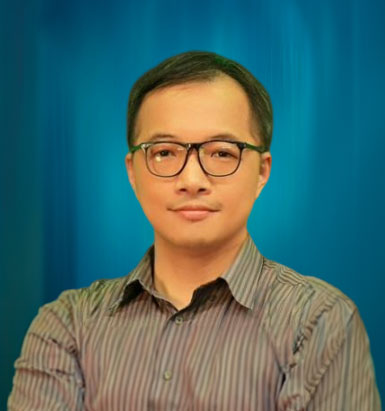
Hung-Pin (Charles) Wen
Computational Intelligence and Automation Lab
National Chiao Tung University, Taiwan
Professor Hung-Pin (Charles) Wen received his Ph.D. from the University of California, Santa Barbara, in 2007. He is currently the Associate Dean and Distinguished Professor of the College of Electrical and Computer Engineering at National Yang Ming Chiao Tung University in Hsinchu, Taiwan, specializing in computer engineering. He has also served as a consultant for the Asia Silicon Valley Development Plan, and National Development Council (NDC) in Taiwan since 2019. He currently also holds a number of national committee positions. Over the past few years, his research has focused on applying computational intelligence to various system-on-chip designs and high-speed networking.
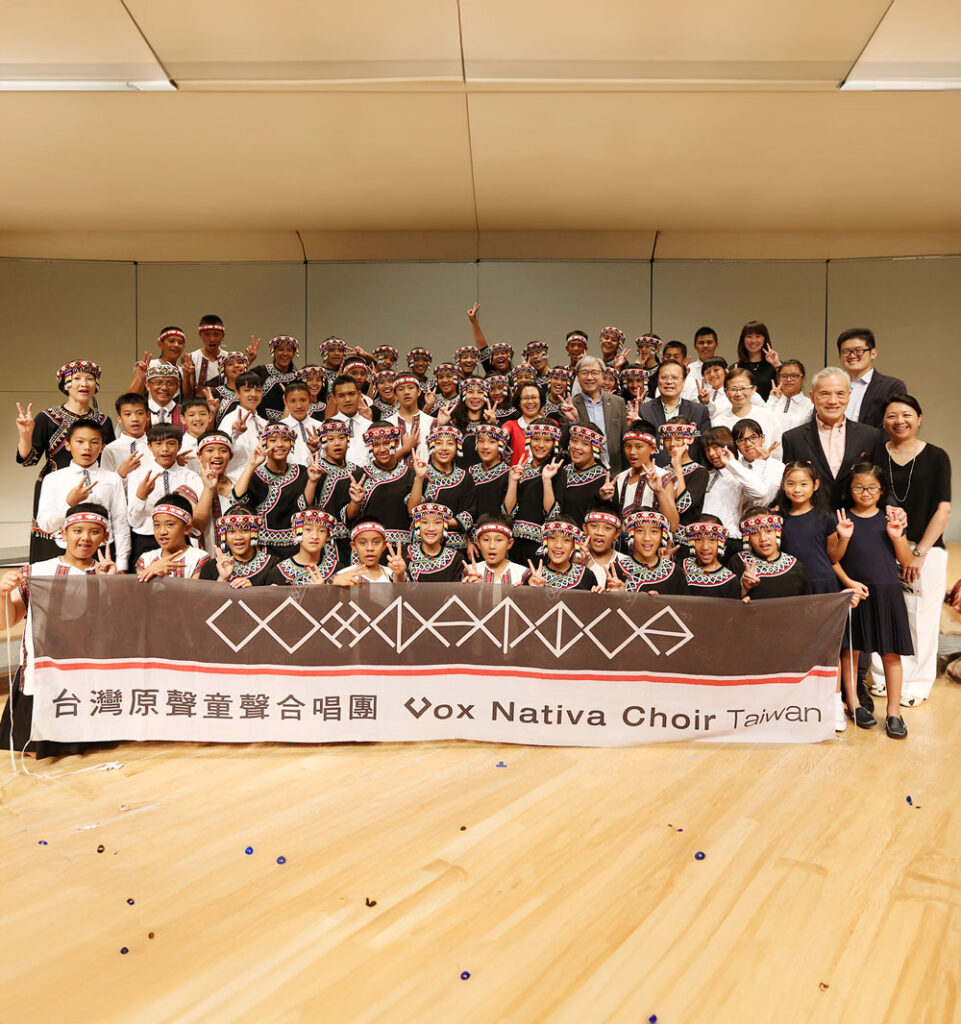
Vox Nativa Association, Taiwan
The members of the Taiwan Vox Nativa Chorus are students who have been studying in Vox Nativa international school or are from other aboriginal groups in Taiwan, such as the Atayal and Alishan Zou. Allowing diverse ethnic groups to gather and sing together helps individuals learn to collaborate and appreciate each other’s unique qualities. The chorus releases a new album every three years with songs in different languages, such as Bunun, Chinese, English, Japanese, Taiwanese, and Hakka.
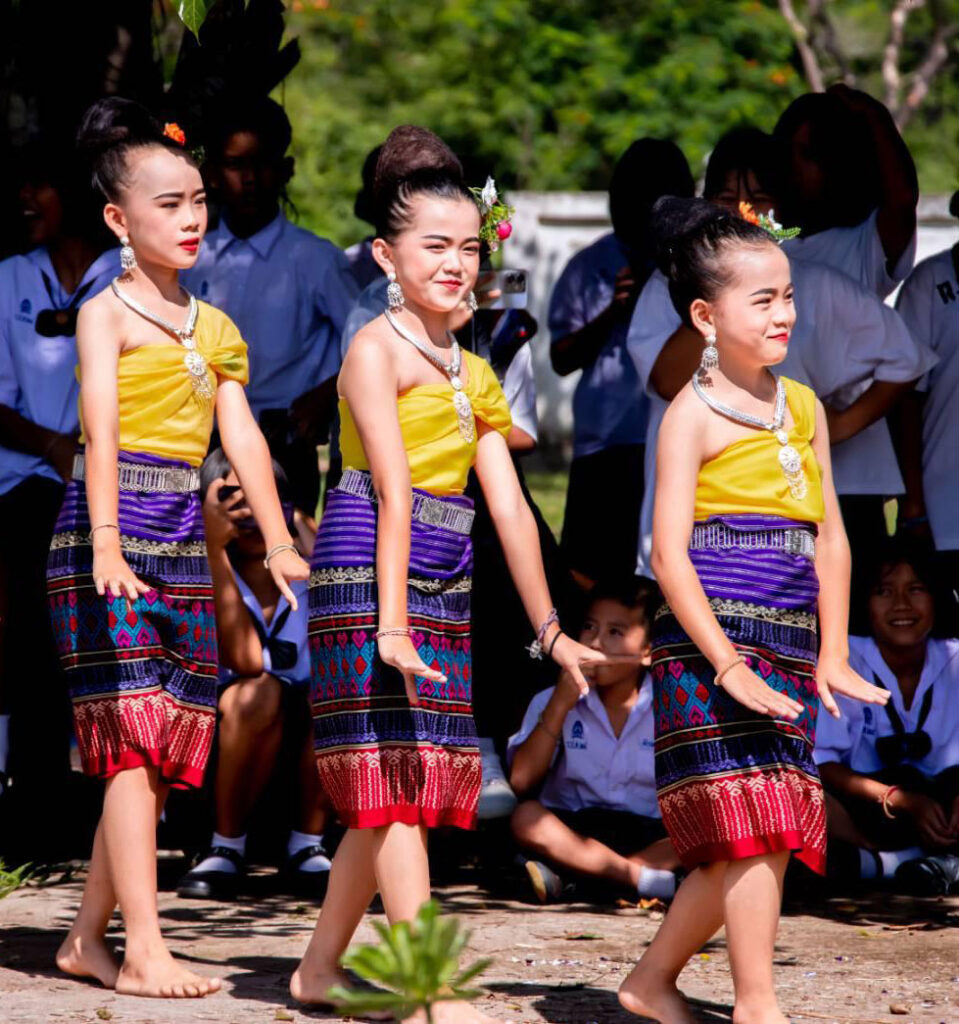
Thai Dance by Primary Rajaprajanugroh 24 School
Phayao, Thailand
The Elementary School Dance group from the Rajaprajanugroh 24 School in Phayao Province, Thailand, consists of teachers and students from grades 1–6. The students are from different ethnic groups, including Hmong, Mien, and more, who gather together to practice Thai classical dances. The group aims to preserve and develop Thai culture to demonstrate beauty, unity, and peace in the world.
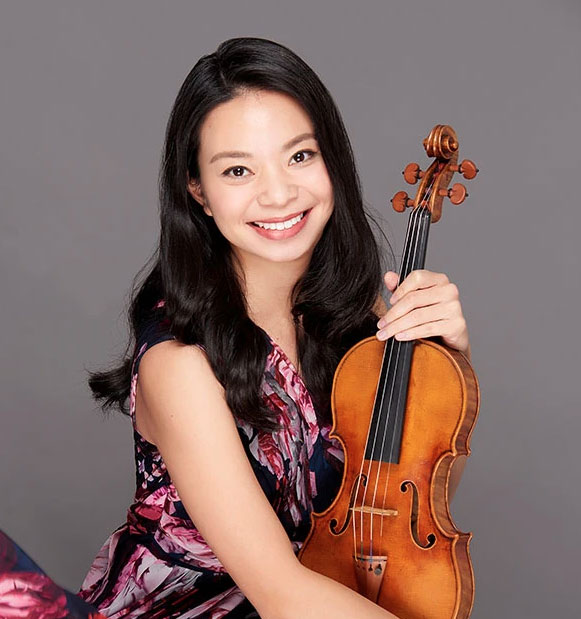
Sirena Huang
Award-Winning Concert Violinist
Sirena Huang is a Taiwanese-American concert violinist. She has received numerous awards, including first prize at the International Violin Competition of Indianapolis, first prize at the Elmar Oliveira International Violin Competition, first place at the International Tchaikovsky Competition for Young Musicians, and many others. Sirena has also performed with orchestras, including the New York Philharmonic, Baltimore Symphony Orchestra, the Cleveland Orchestra, Singapore Symphony Orchestra, and the Shanghai Symphony Orchestra. At age nine, she made her orchestra solo debut with the National Taiwan Symphony Orchestra.
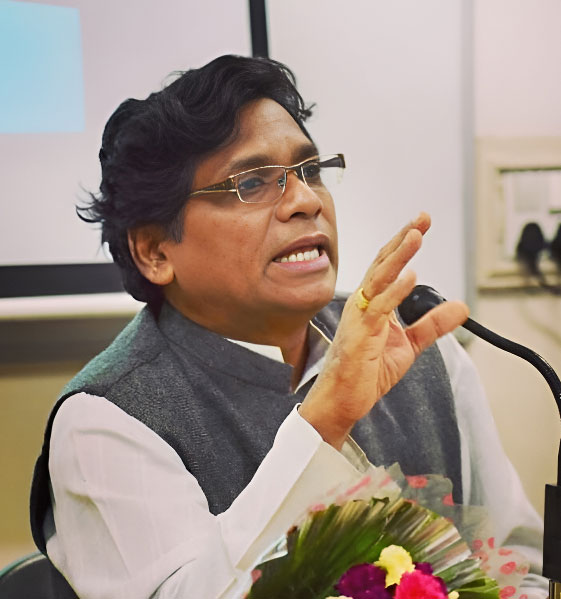
Professor Upendra Rao
Jawaharlal Nehru University
New Delhi, India
Professor C. Upendra Rao is a senior professor in the School of Sanskrit and Indic Studies at Jawaharlal Nehru University, New Delhi. He has received three Gold medals from Osmania University and Banaras Hindu University for outstanding performance in education. Professor Rao has specialized in Sanskrit and Pali, and his research interests include Sanskrit literature and poetics and Early Buddhist literature in Pali.
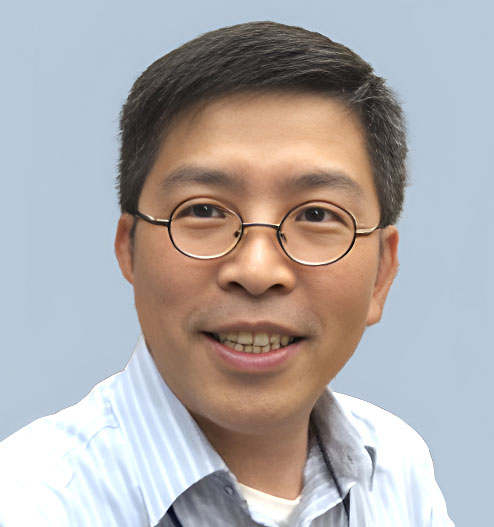
Professor Lam Wing Kwan Anselm
Director of the Center for Catholic Studies
Chinese University of Hong Kong
Dr. Lam received his licentiate in Philosophy from the Pontifical Gregorian University in Rome and his Doctorate in Political Science from Boston College in the United States. He has been an Assistant Professor of the Department of Social Science at the Hang Seng University of Hong Kong for nine years. Dr. Lam taught philosophy courses in the General Education curriculum and the Asian Studies Program, e.g., Ethics, Business Ethics, Life and Death. He is experienced in General Education Curriculum design. His research interest covers Political Philosophy and Catholic Social Ethics — particularly integral ecology.
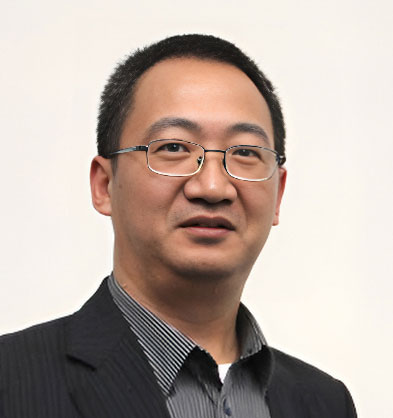
Professor Xue Yu
Director of the Center for the Study of Chan Buddhism and Human Civilization
Chinese University of Hong Kong
Professor Xue Yu is currently a Research Fellow at the Department of Cultural and Religious Studies, Director of the Center for the Study of Chan Buddhism and Human Civilization, and Director of the Center for the Study of Religious Ethics and Chinese Culture, CUHK. He specializes in Buddhist studies and Buddhist-Christian dialogue in modern China. Professor Xue Yu’s publications include “Buddhism, War, and Nationalism: Chinese Monks in the Struggle Against Japanese Aggressions,” “Socialist Transformation of Chinese Buddhism,” and more than 100 research papers. Professor Xue Yu is also the Chief Editor of the International Journal for the Study of Chan Buddhism and Human Civilization.
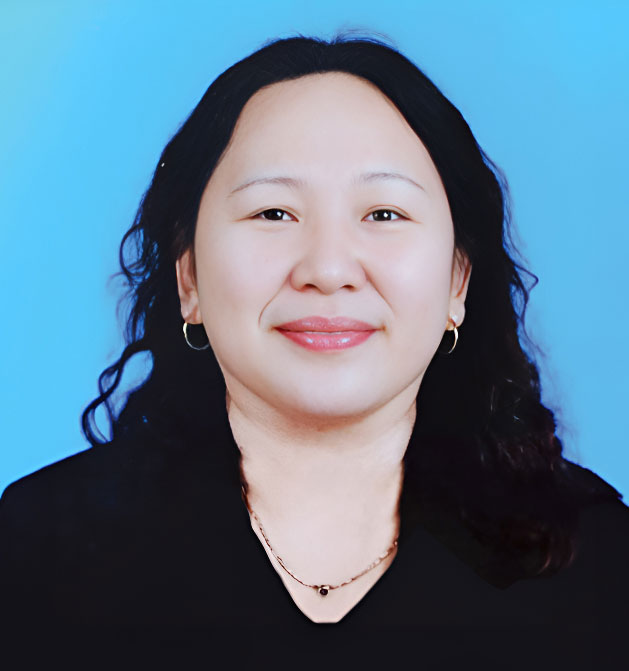
Dr. Jacinta Tangil
University Malaysia Sabah (UMS)
Dr. Jacinta Tangil is an experienced educator and lecturer from Kota Kinabalu, Sabah. For over two decades, she dedicated her time and expertise as a teacher at a secondary school, positively impacting countless students’ lives. After her career as a secondary school teacher, Jacinta pursued higher studies at Universiti Malaysia Sabah, where she delved into the realm of Cultural Studies. Jacinta now imparts her knowledge and insights as a lecturer at Likas Vocational College in Kota Kinabalu, where she continues to inspire and guide the next generation of learners, fostering a love for education and a deep appreciation for cultural diversity.

